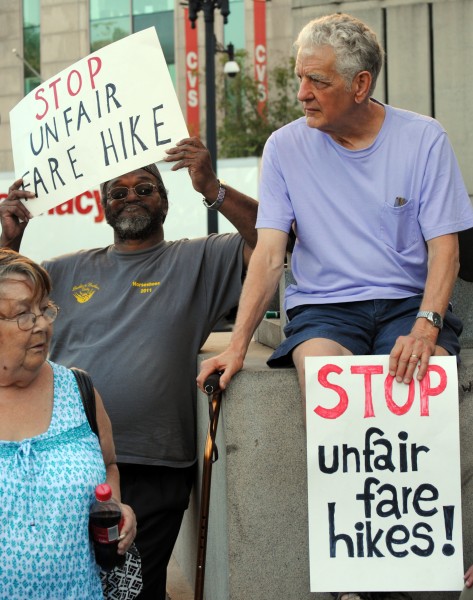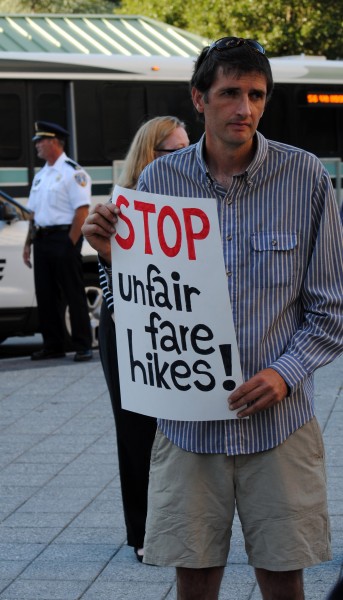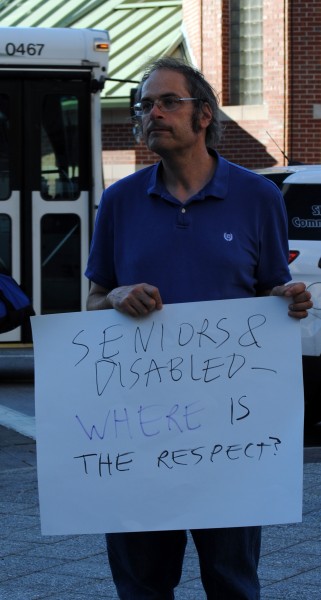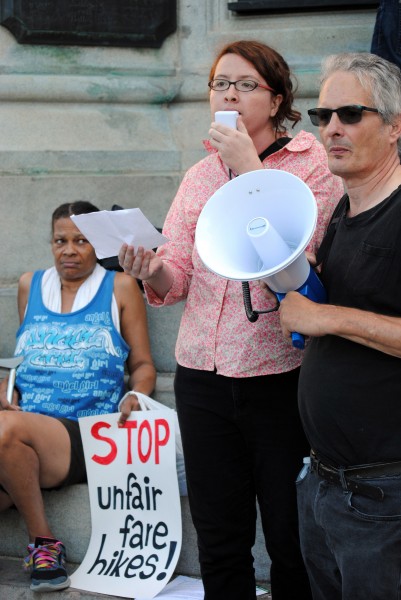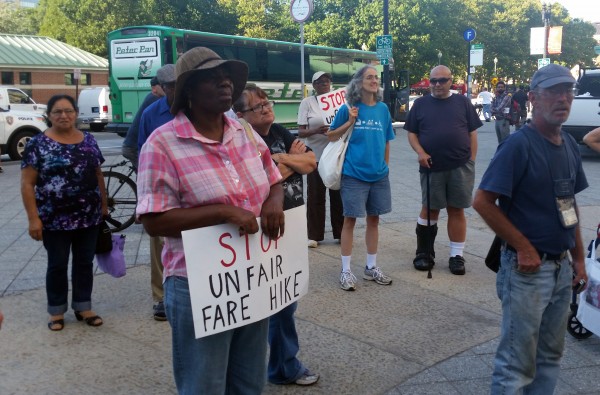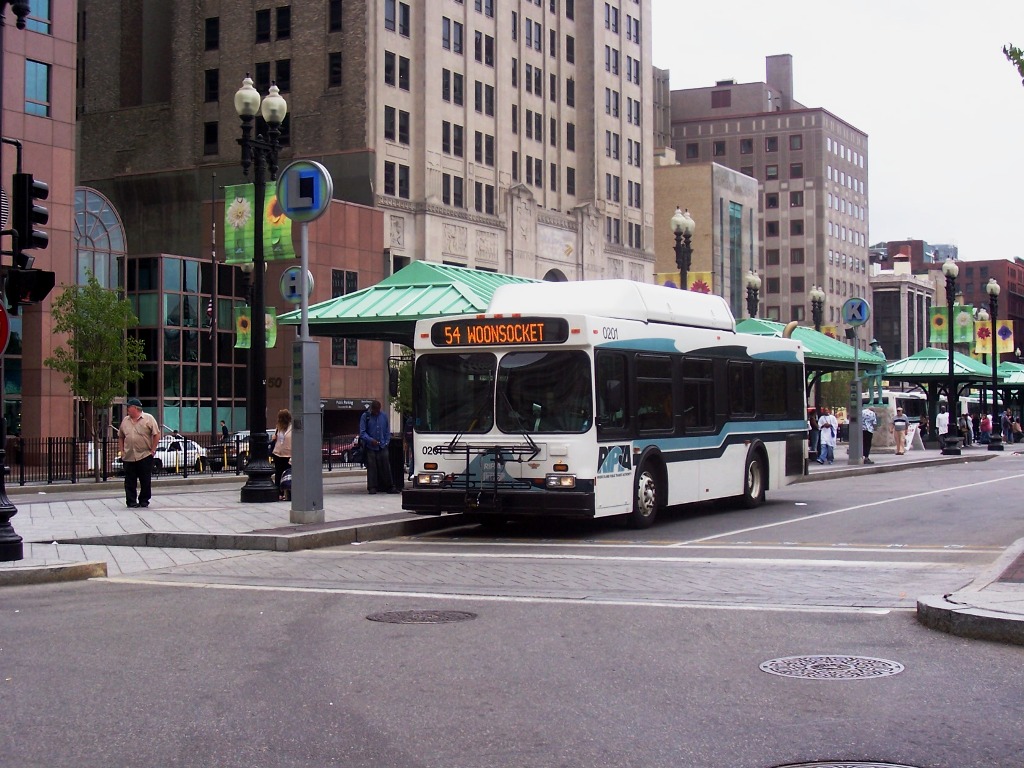 Have you heard about the $17 million “Downtown Enhanced Transit Corridor” grant that the city of Providence received for the Rhode Island Public Transit Authority to develop a 6-stop enhanced bus corridor to run from the Providence Railroad station to a new bus hub in the hospital district? Its largely the route originally planned to be for a streetcar.
Have you heard about the $17 million “Downtown Enhanced Transit Corridor” grant that the city of Providence received for the Rhode Island Public Transit Authority to develop a 6-stop enhanced bus corridor to run from the Providence Railroad station to a new bus hub in the hospital district? Its largely the route originally planned to be for a streetcar.
RIPTA is organizing a “stakeholder” group to advise on implementation, the first meeting of which is scheduled for October 24. The RIPTA Riders Alliance, of which I am a member, was invited to participate. An open public meeting for all may be scheduled later.
$17 million should be enough to be a potential game-changer for downtown and for RIPTA, both of which are struggling. Indeed RIPTA ridership has dropped significantly in the last 2 years, from about 20 to 18 million riders. Not long ago the RIDOT Director publicly called RIPTA a “failure” because of our low commute by transit rate. The decision by Citizens Bank to locate a huge corporate “campus” west of I-295 where there is no transit is an indication of how little RIPTA can matter to employers. Downtown is hurting too, from the long empty “Superman” building to the well publicized perception of unpleasant conditions and “chaos” in Kennedy Plaza.
RIPTA planners have said they intend to use the $17 million grant to jazz up the bus stops with enhanced amenities, to buy some ultra-clean hybrid buses, and have six of their lines (#1,3,6,51,58,72) routed on the
corridor to ensure very frequent service.
While this includes some good ideas, at $2/ride, soon likely to be $2.50, I don’t see how this will attract many new riders who don’t already have a pass or ride free anyway. I don’t see how this expensive fare will do much to attract attention of those wanting to do business that might lead to economic redevelopment. Thus I suggest that the buses RIPTA wants to buy be used to establish a free loop on that corridor.
About a year ago the Coalition for Transportation Choices hosted a meeting here with invited speakers from Denver, Minneapolis and Hartford where transit initiatives were successful in building ridership and spurring economic development. One thing Denver and Hartford (New Haven too) did to help do this was to institute a free bus shuttle connecting their train stations, also on the periphery, to key central locations. So this can be done! I’ll also add that having lived in Oregon 1974-75 when Portland OR was considered a failed city with a dead downtown, one thing they did, (Seattle too) to turn things around was to institute a fare-free downtown zone to get people more used to using transit and to come downtown where they can get around easily. This was a great success even if it could not be sustained through the 2008 recession.
Not just those that love cities, we all have a stake in having our central city and transit system succeed as they have so much potential to contribute to the problem of combating climate change.
Those who think this is an idea worth exploring need to encourage RIPTA to reconsider. Operating funds for the shuttle is a problem, but if there is a will to do so perhaps Federal “CMAQ ” funds can be reprogrammed for this purpose, at least for a few years. (CMAQ helped support operating the old Providence-Newport ferry and the South County commuter rail.) After the bad publicity on Kennedy Plaza, both for the buses and the city, something needs to be done to get positive attention. And a free shuttle will help strengthen the value of our Northeast Corridor location and commuter rail access TO Providence, from the north and south.
This project, together with enhanced policing and better services for the homeless and mentally ill in the Plaza, can begin to turn the situation around for the better. For reasons of environment, economy, and quality of life, and for those who love cities, we don’t want to squander this opportunity created by this grant to make a real improvement on our economy, environment, and quality of life.

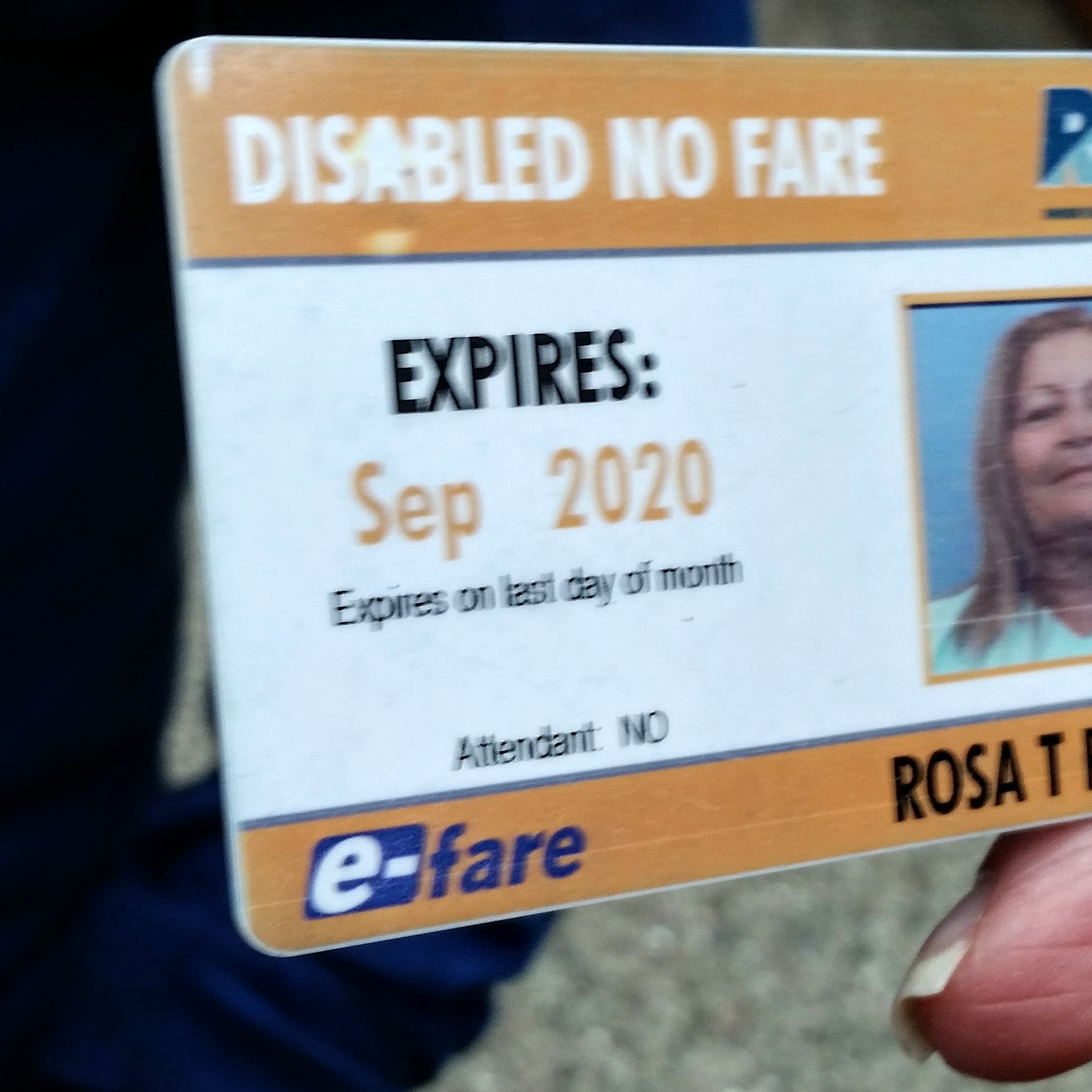
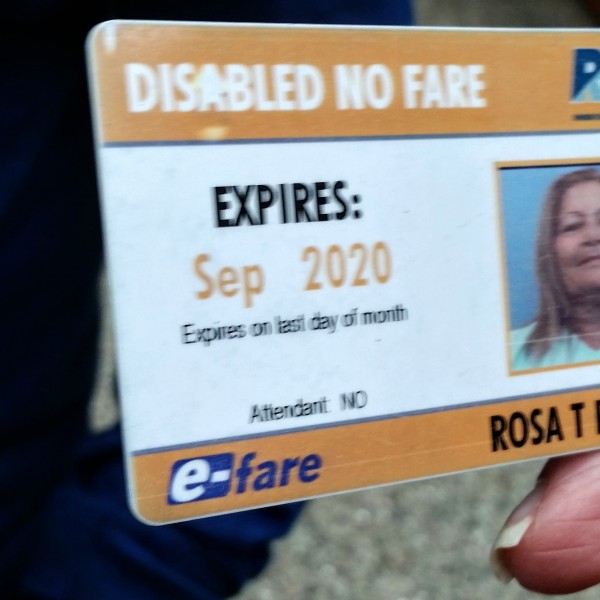 Rosa was waiting near the end of a line of about 30 people when I found her at 8:30am in the Kennedy Plaza terminal building Wednesday morning. In her hand she held a senior/disabled bus pass that was due to expire in September 2020, but a driver told her that the pass was no good anymore and that she had to get a new bus pass if she wanted to continue to ride at the reduced fare.
Rosa was waiting near the end of a line of about 30 people when I found her at 8:30am in the Kennedy Plaza terminal building Wednesday morning. In her hand she held a senior/disabled bus pass that was due to expire in September 2020, but a driver told her that the pass was no good anymore and that she had to get a new bus pass if she wanted to continue to ride at the reduced fare.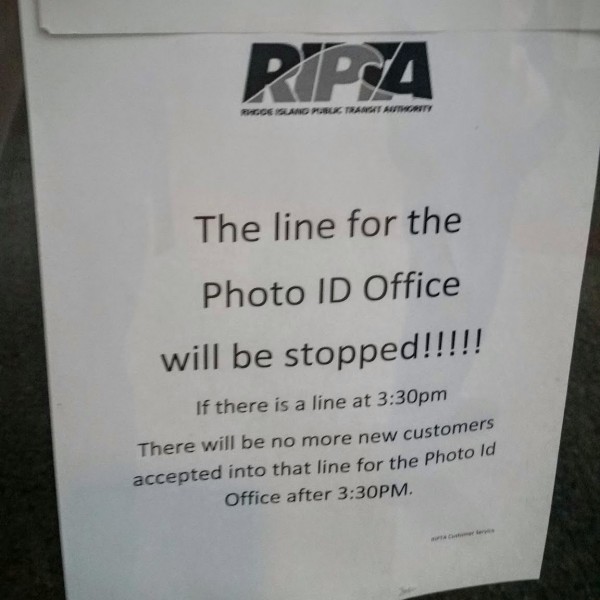 Further up the line Frederick, a disabled man in his late thirties, told me that he had waited in line for over two hours the day before. “They cut off the line at ten people, and told the rest of us to come back tomorrow,” he said. He added that it is difficult for him to get around without a bus pass.
Further up the line Frederick, a disabled man in his late thirties, told me that he had waited in line for over two hours the day before. “They cut off the line at ten people, and told the rest of us to come back tomorrow,” he said. He added that it is difficult for him to get around without a bus pass.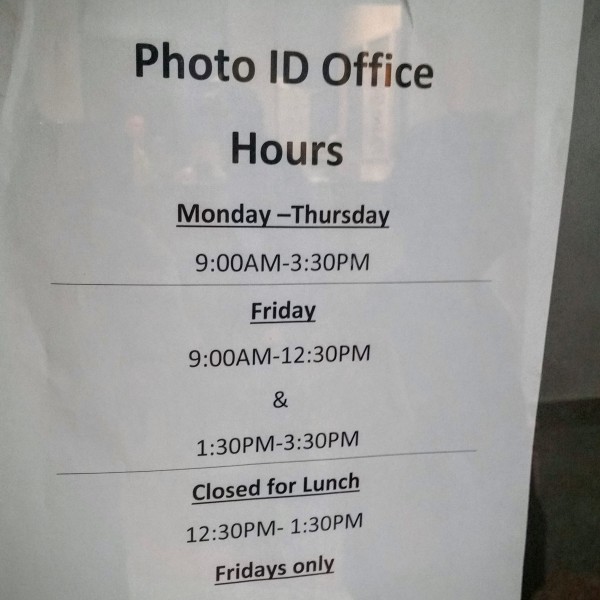 “There was no way to determine if a pass holder had died or moved away; their passes remained active and in use in our system until they expired. So we knew we needed to lessen the time the passes are valid. They will now be valid for two years, not five. The passes being issued now will expire on a customer’s birthday after the two-year mark, so everyone will not have to re-qualify at the same time again – it will be staggered.”
“There was no way to determine if a pass holder had died or moved away; their passes remained active and in use in our system until they expired. So we knew we needed to lessen the time the passes are valid. They will now be valid for two years, not five. The passes being issued now will expire on a customer’s birthday after the two-year mark, so everyone will not have to re-qualify at the same time again – it will be staggered.”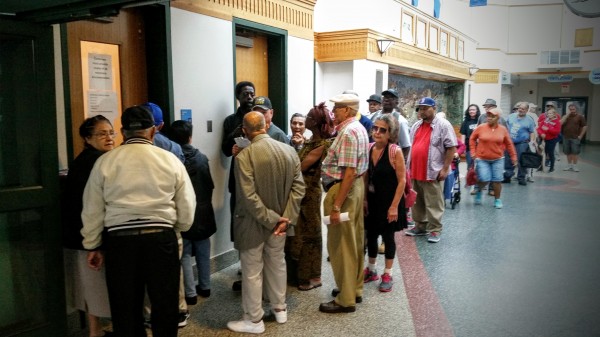

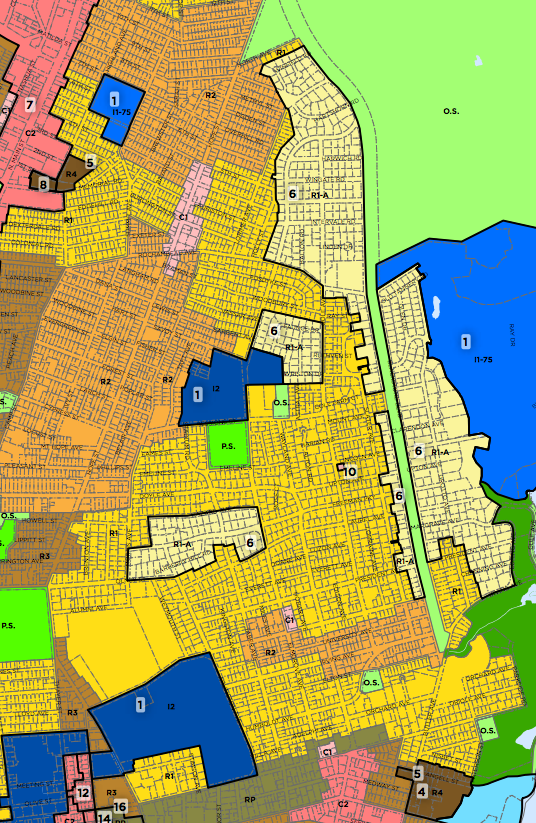
 Former Providence mayor Joseph Paolino’s media blitz around homelessness should be taken with a grain (or two, or three) of salt. In 2014, Paolino spoke with James Baar at
Former Providence mayor Joseph Paolino’s media blitz around homelessness should be taken with a grain (or two, or three) of salt. In 2014, Paolino spoke with James Baar at 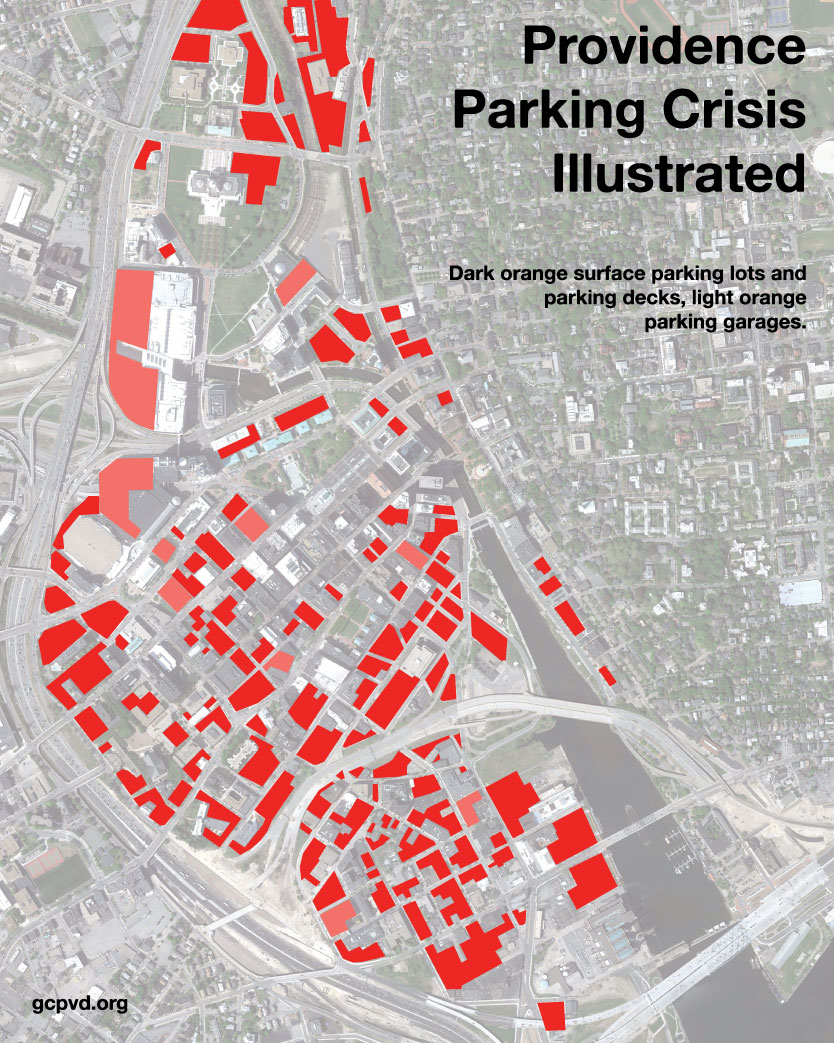
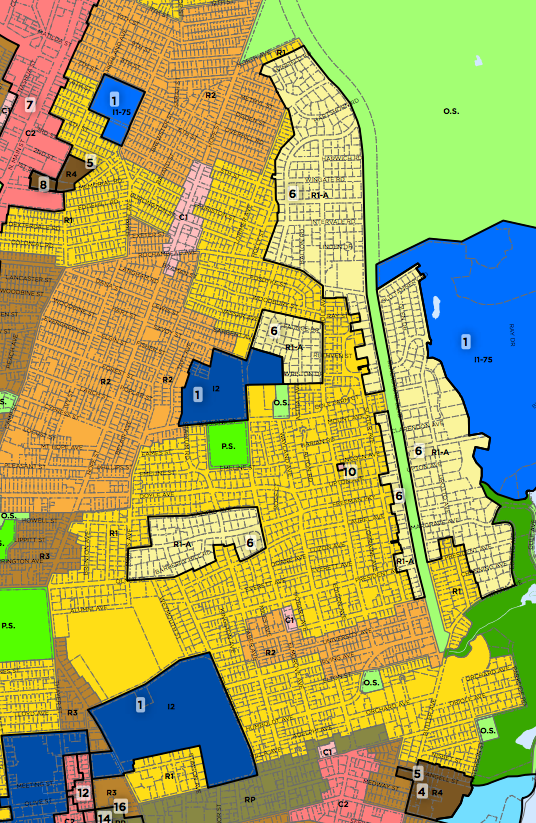
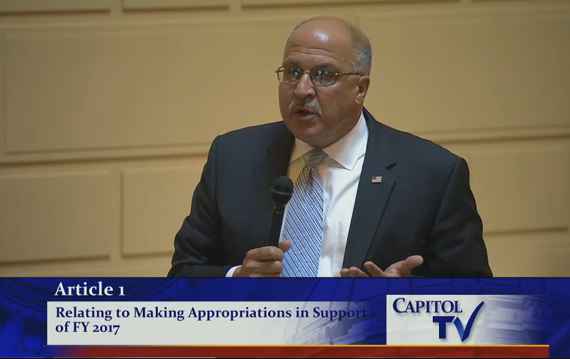
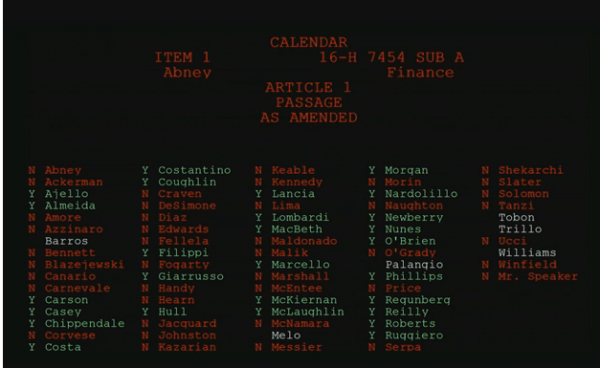
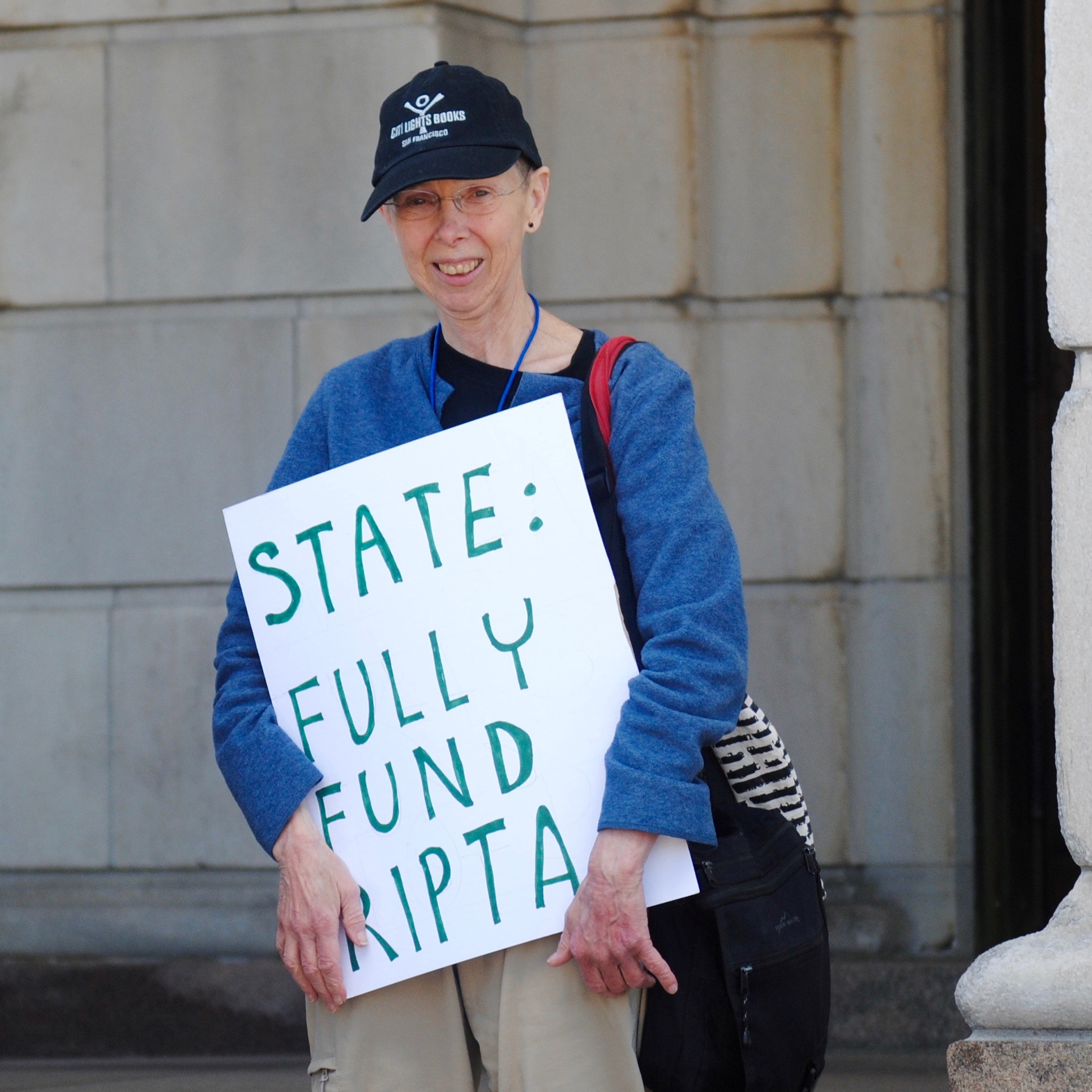
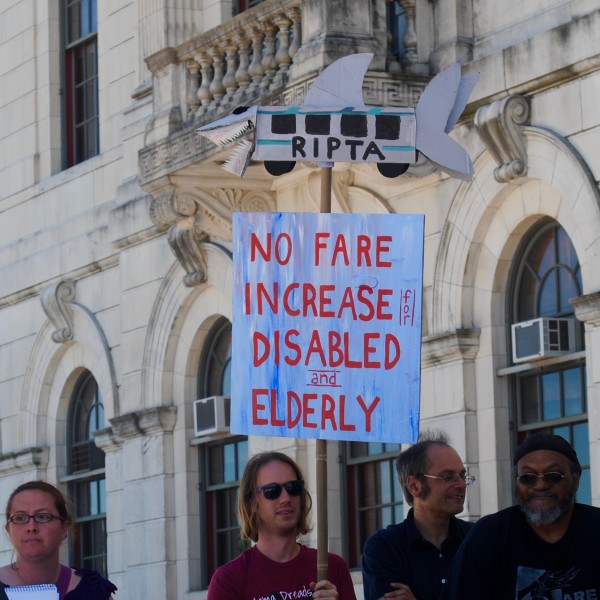

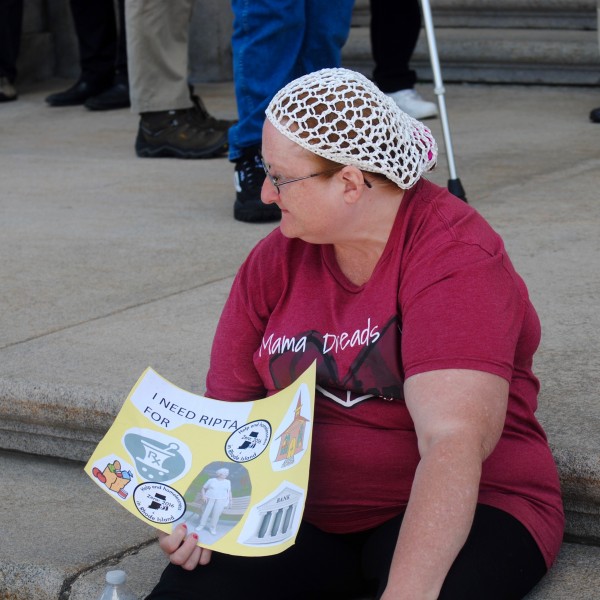

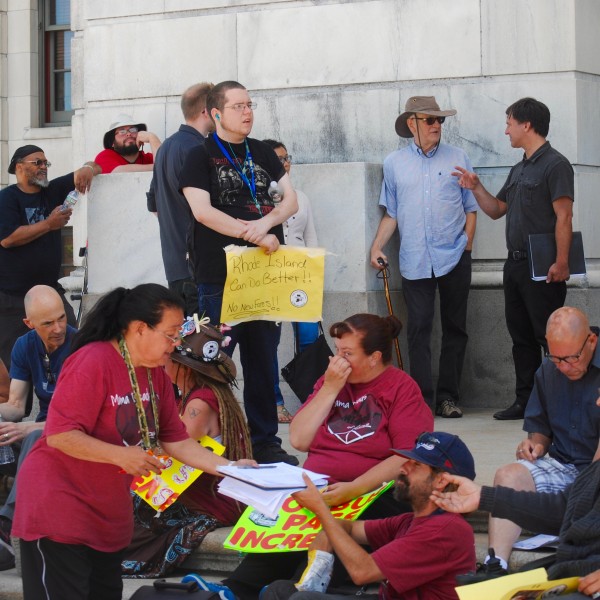
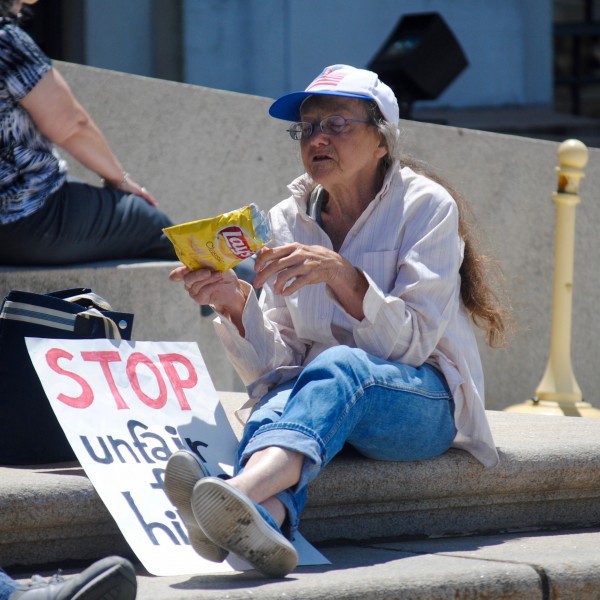
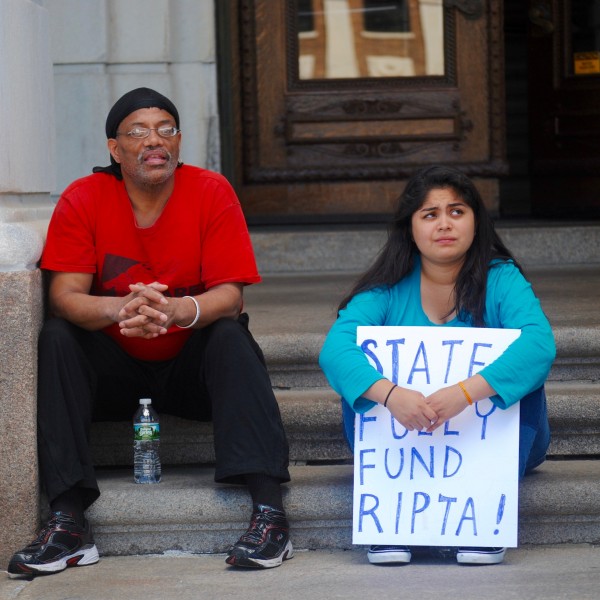

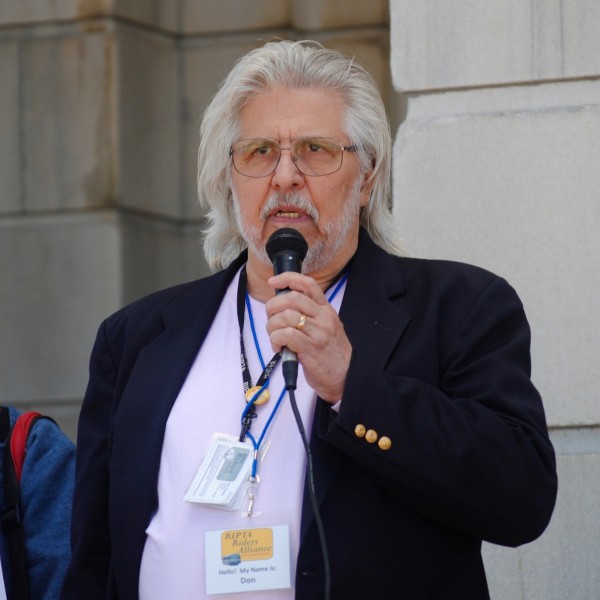
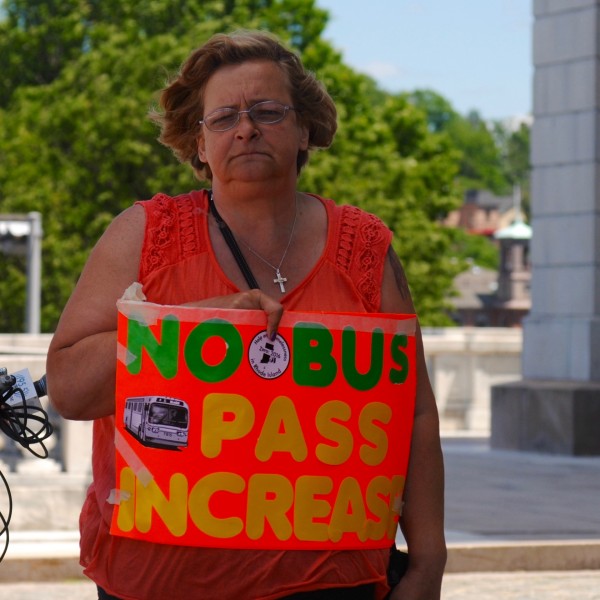
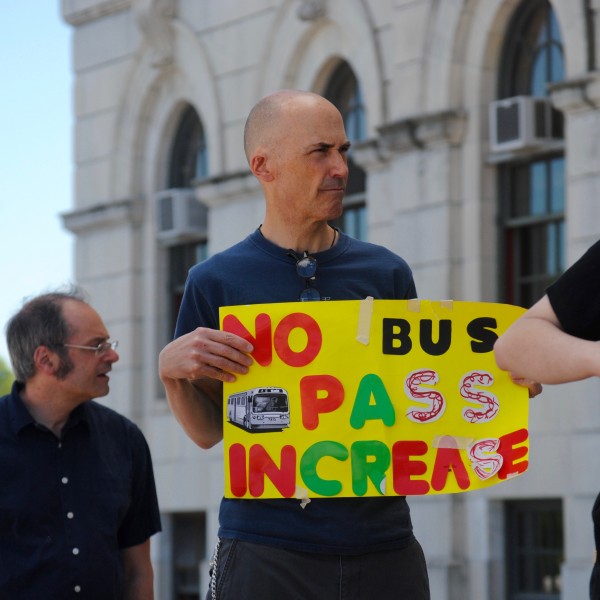
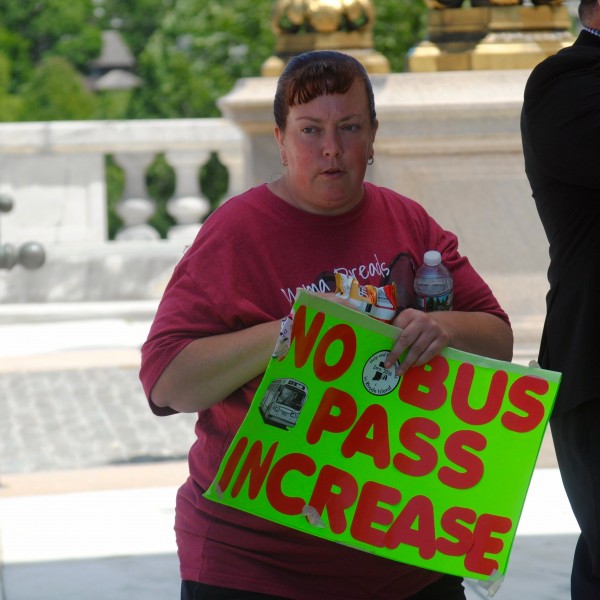


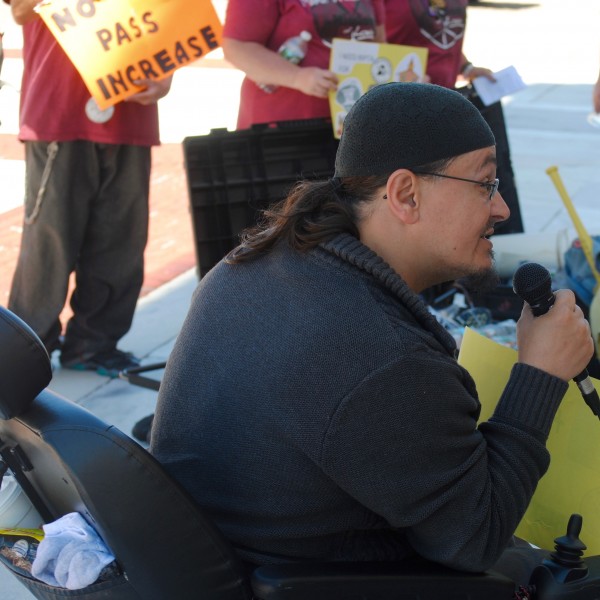
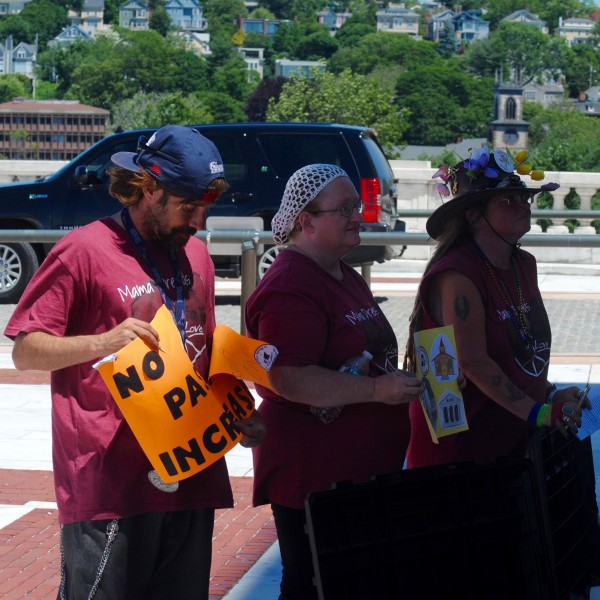
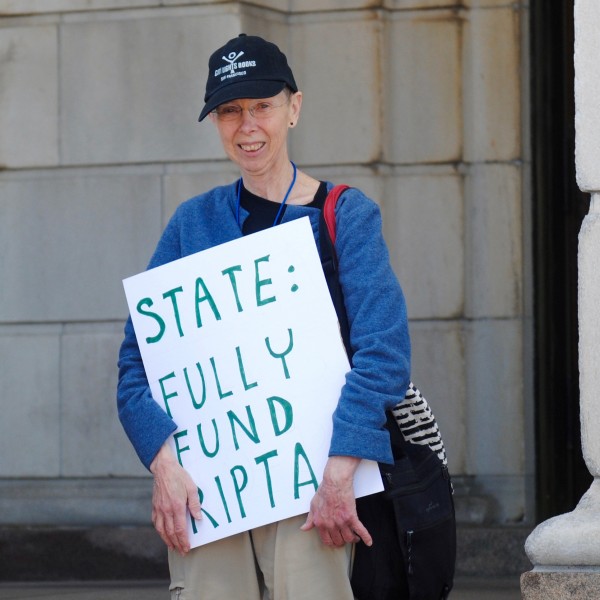
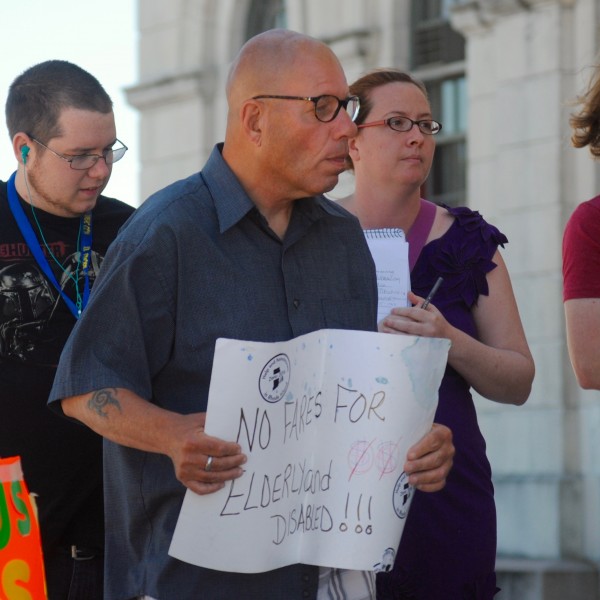



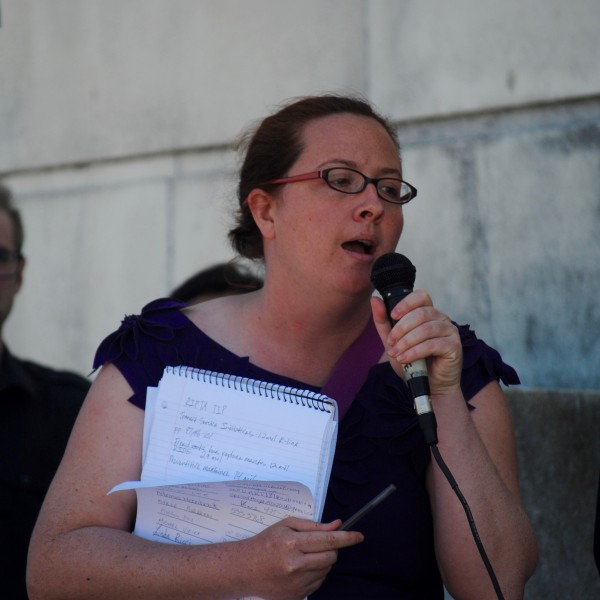
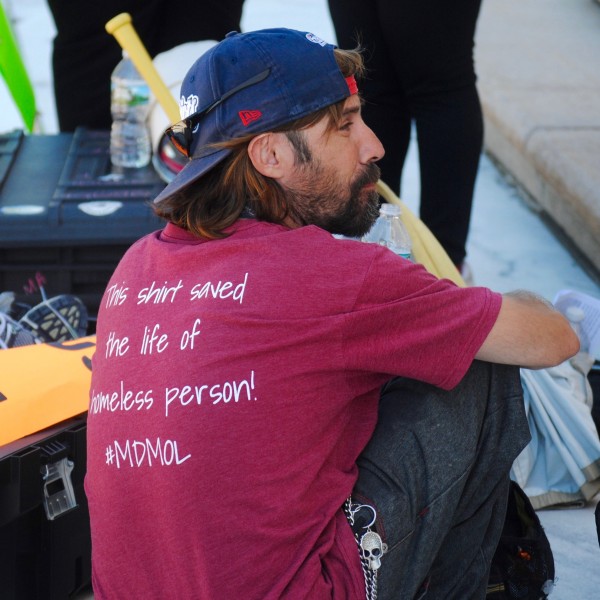
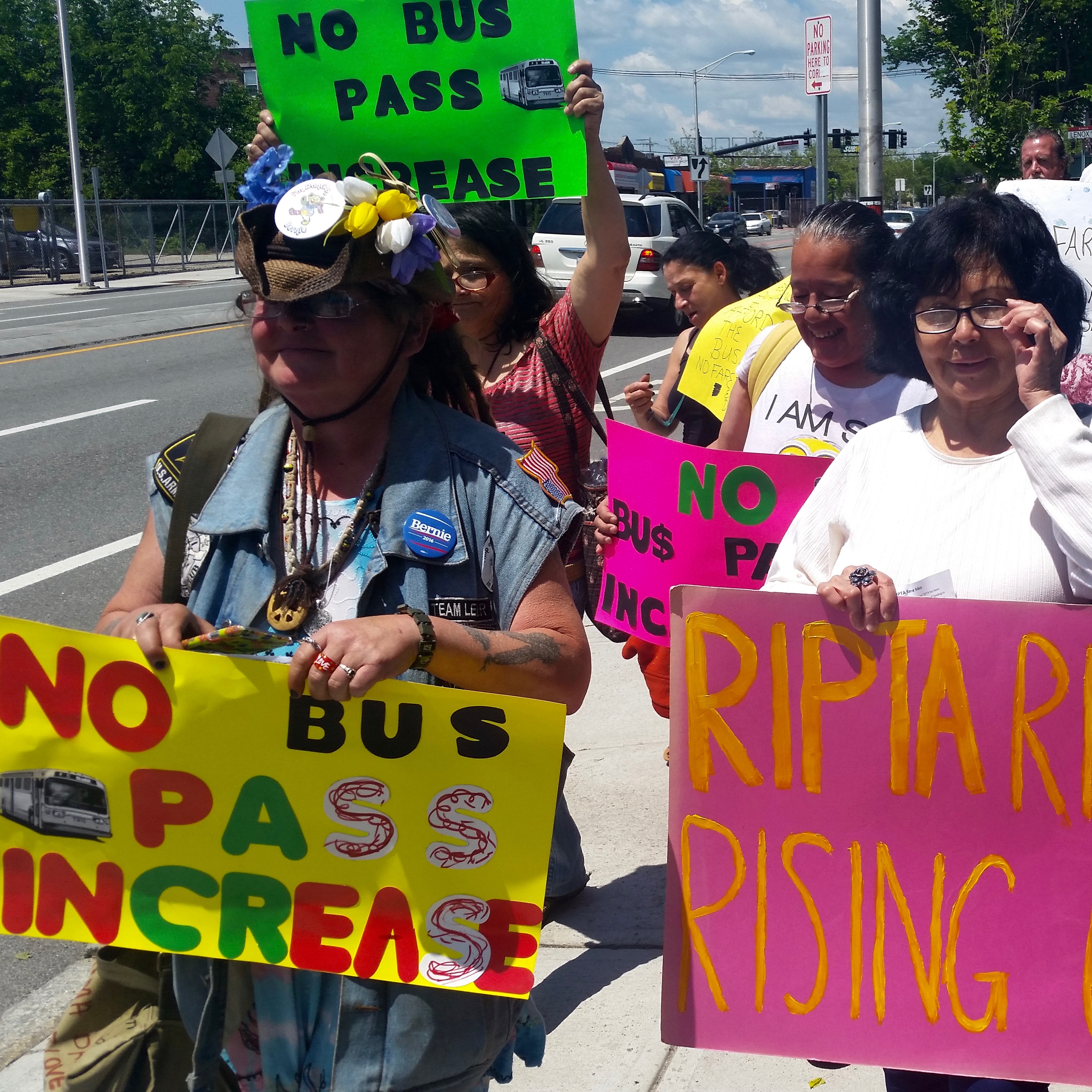

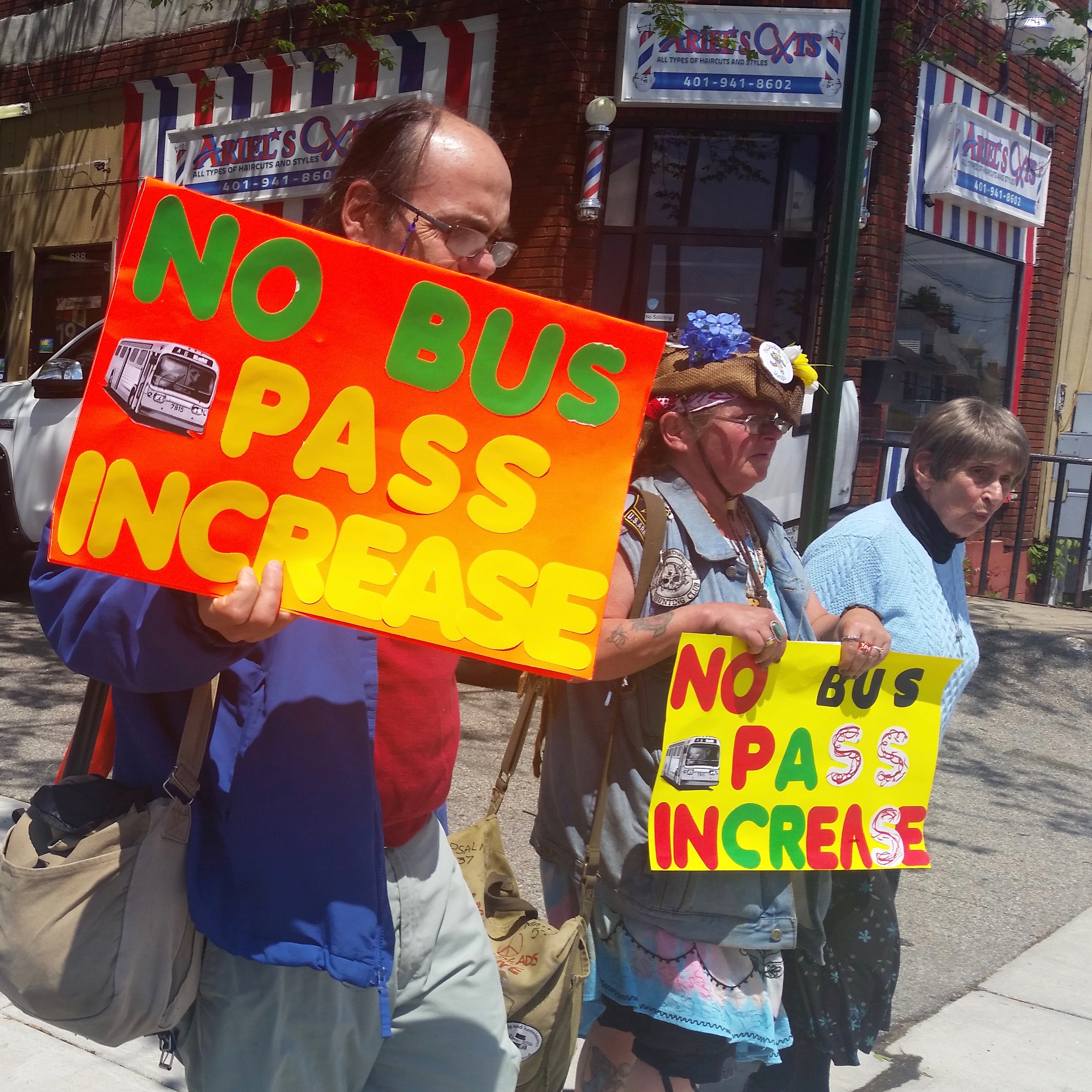
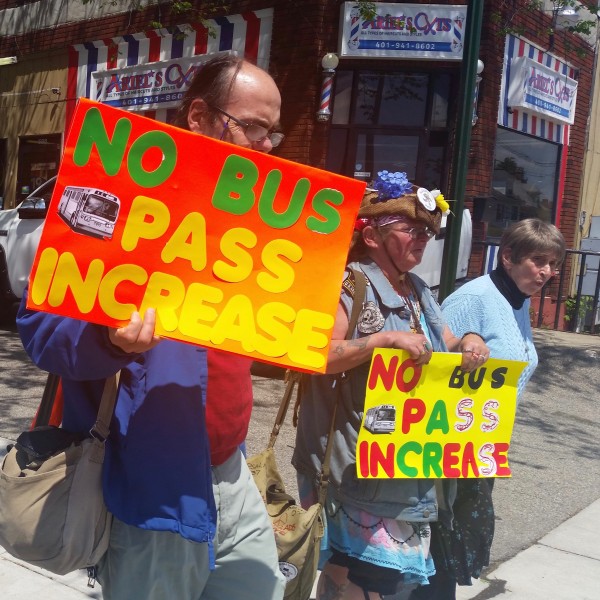 Some of Rhode Island’s most vulnerable people were dealt a serious blow in the recently released House budget. Disabled and senior Rhode Islanders are going to be hit with a bus fare hike now expected to start in January.
Some of Rhode Island’s most vulnerable people were dealt a serious blow in the recently released House budget. Disabled and senior Rhode Islanders are going to be hit with a bus fare hike now expected to start in January.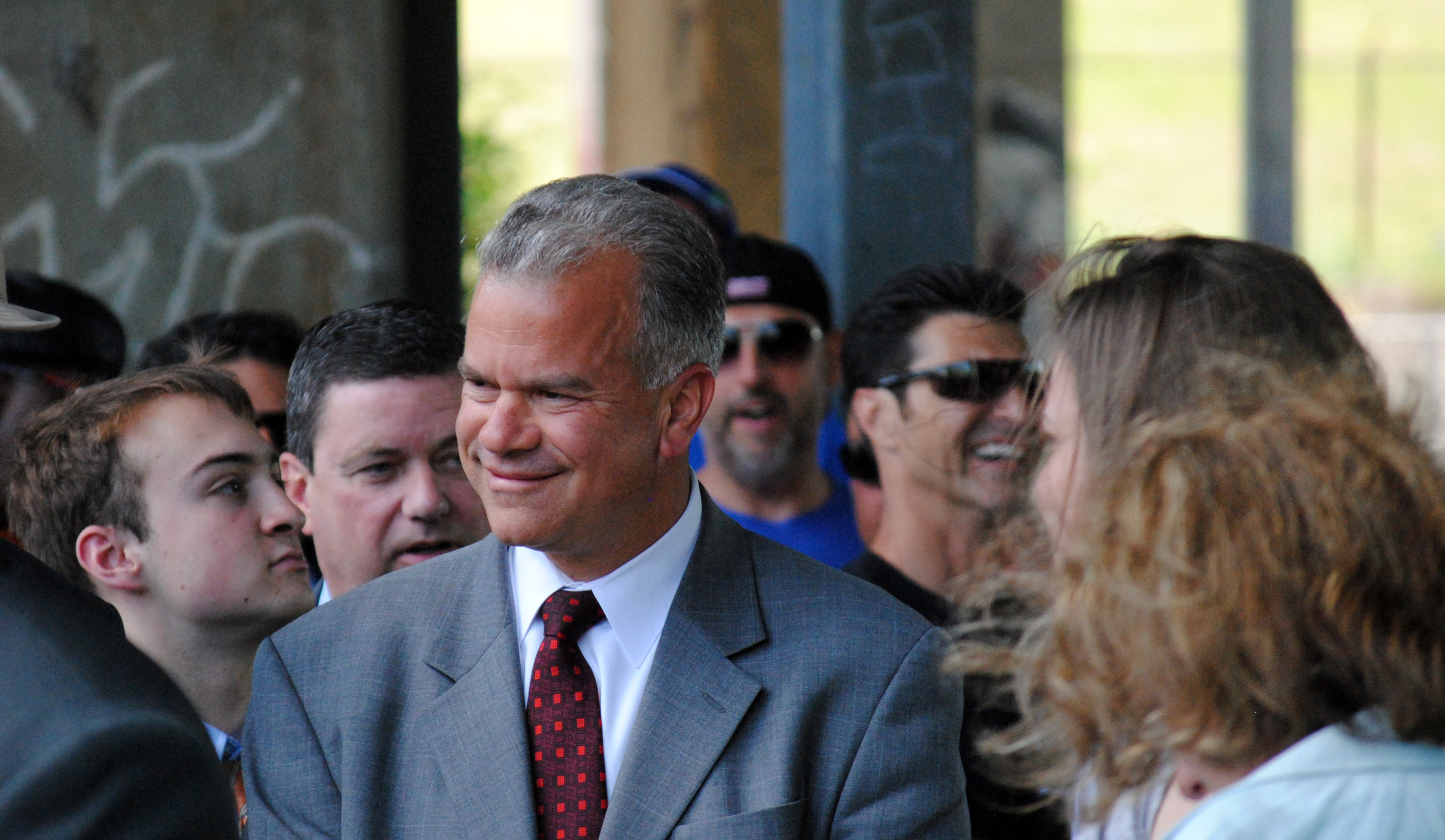
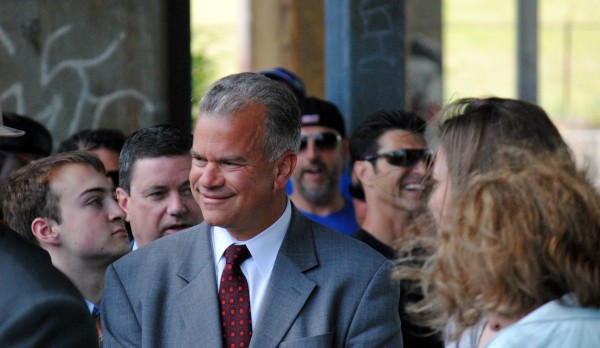
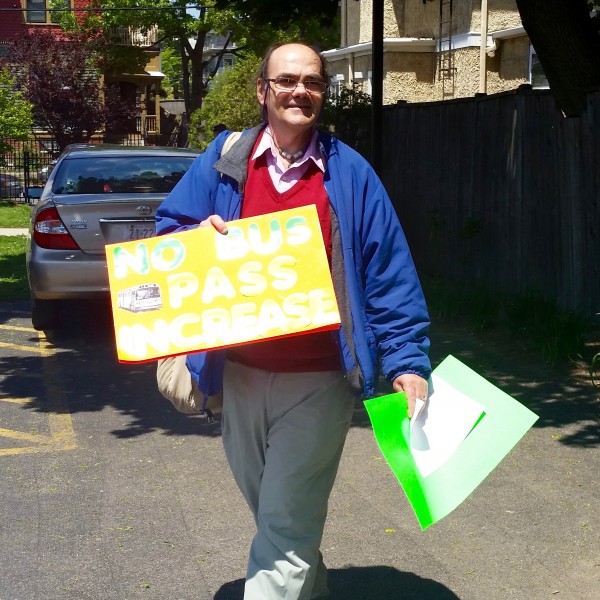 Red Bandana Award winner Artermis Moonhawk lead a group of homeless, elderly and disabled people and allies carrying signs demanding that RIPTA re-institute the
Red Bandana Award winner Artermis Moonhawk lead a group of homeless, elderly and disabled people and allies carrying signs demanding that RIPTA re-institute the 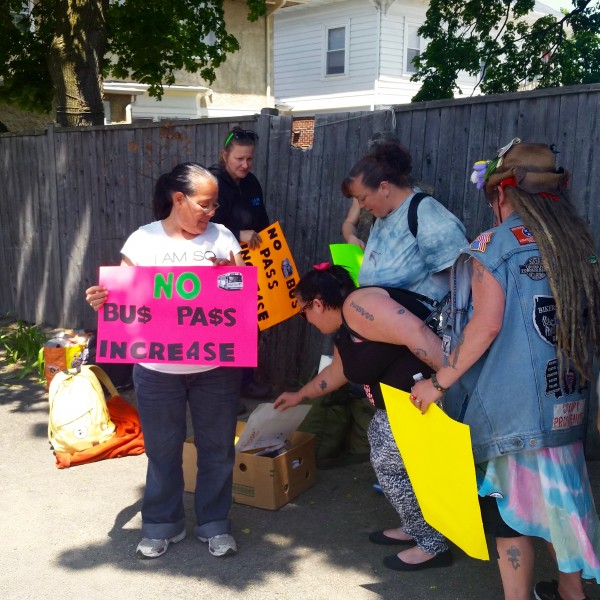
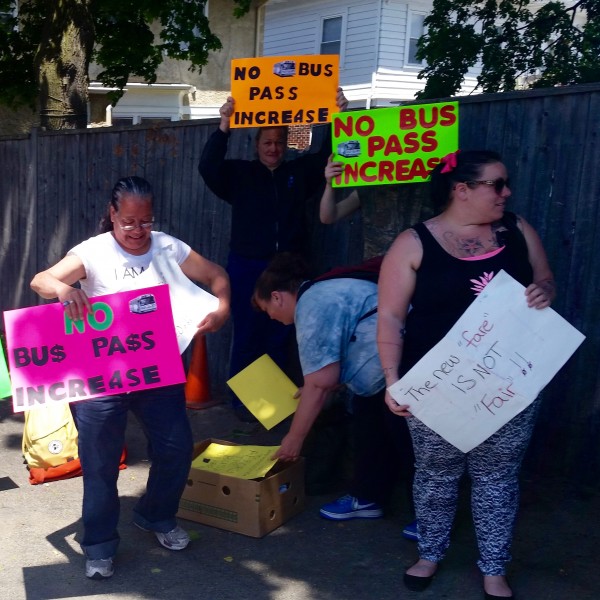
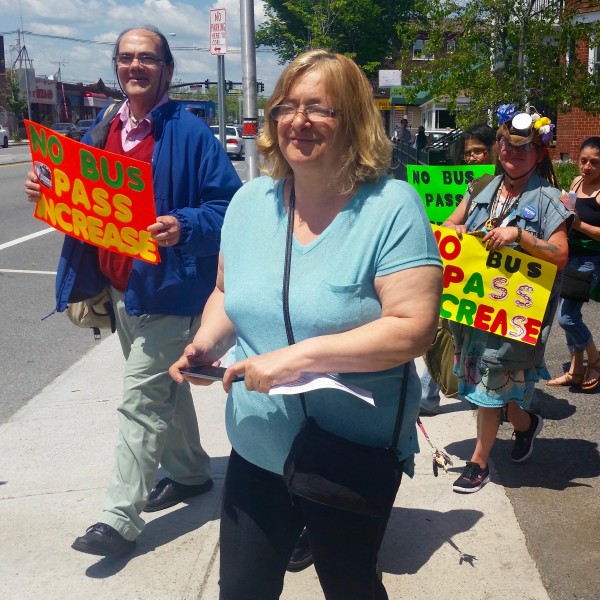
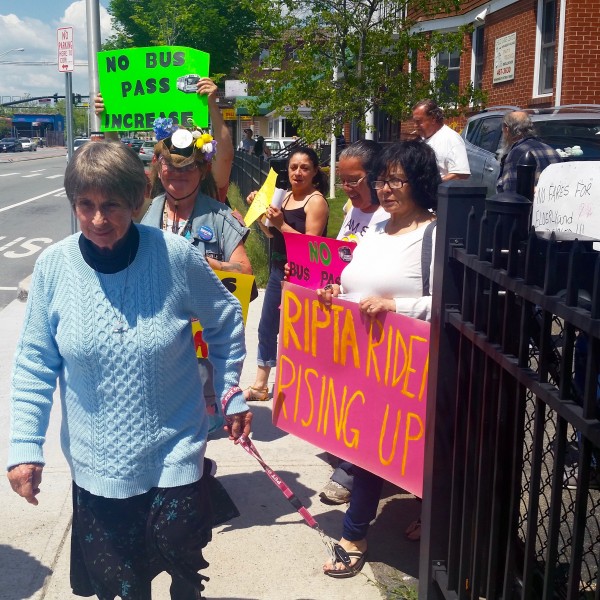
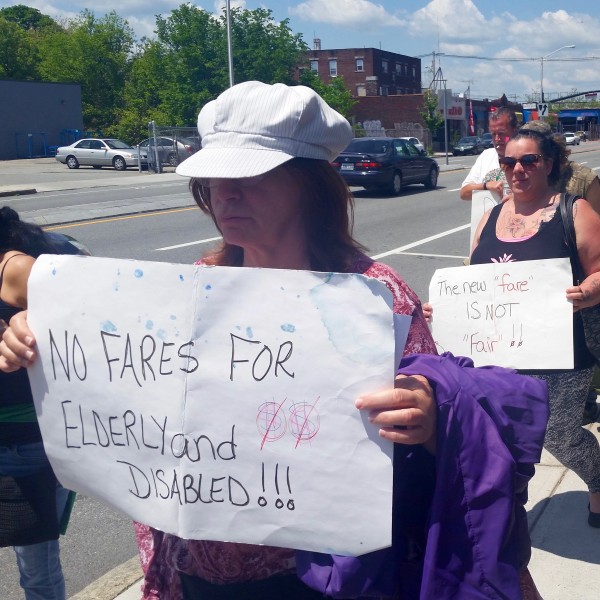
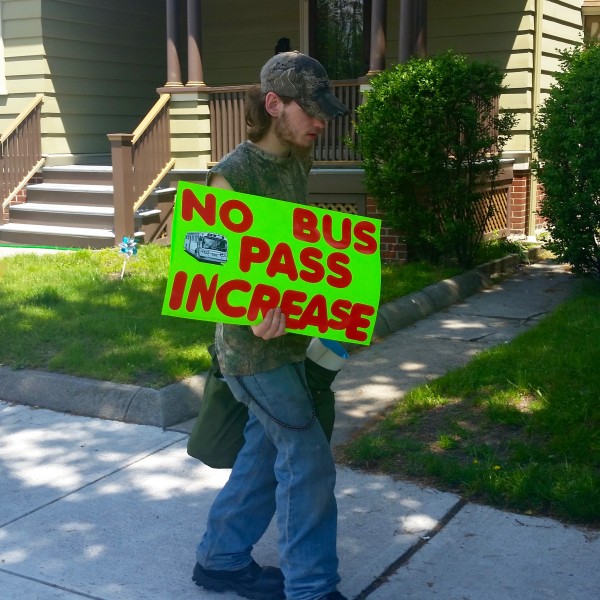
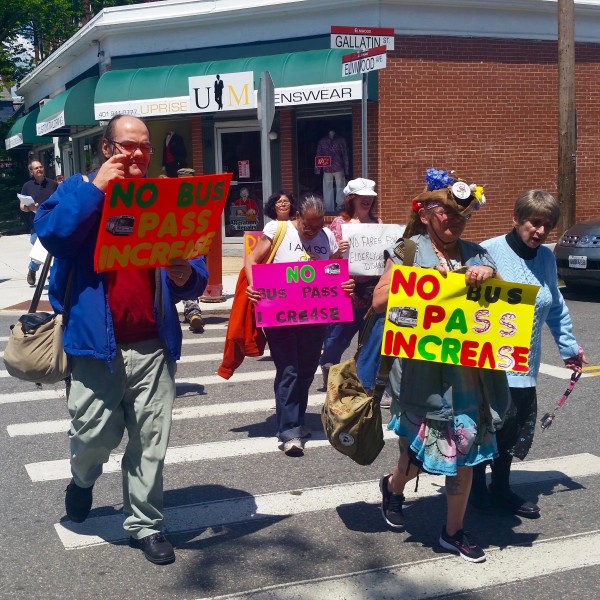
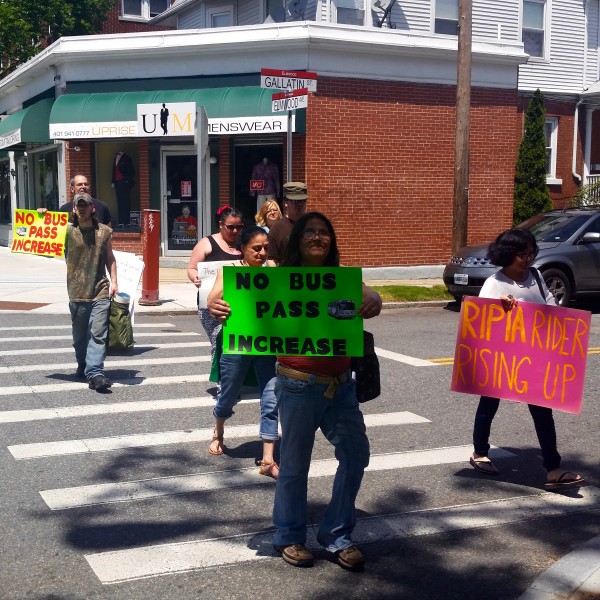
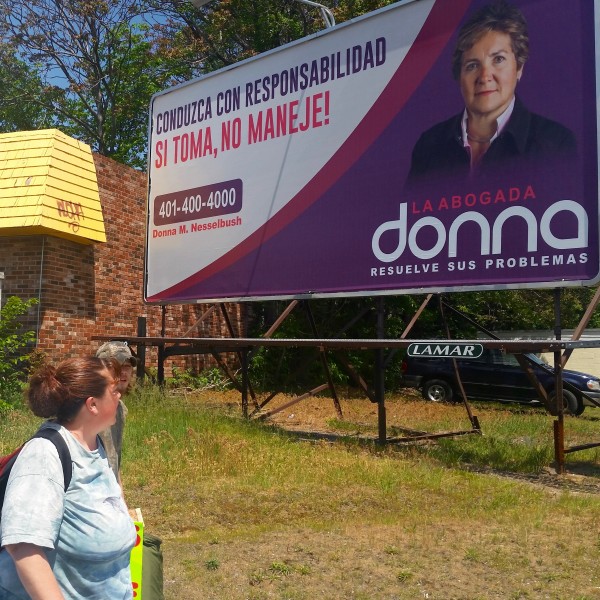
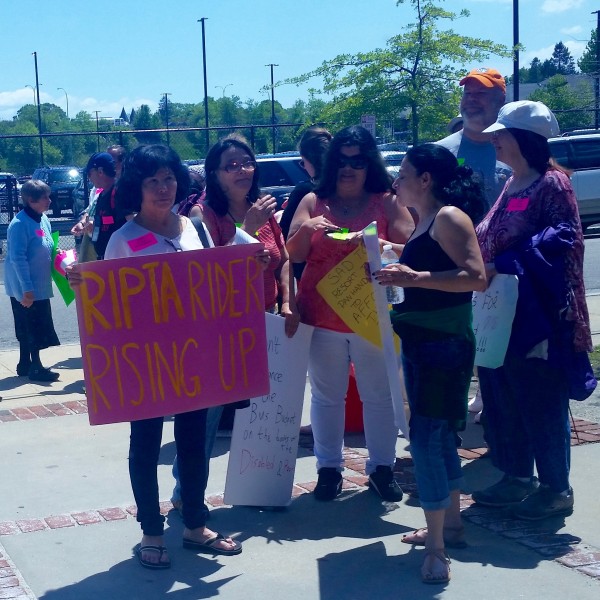
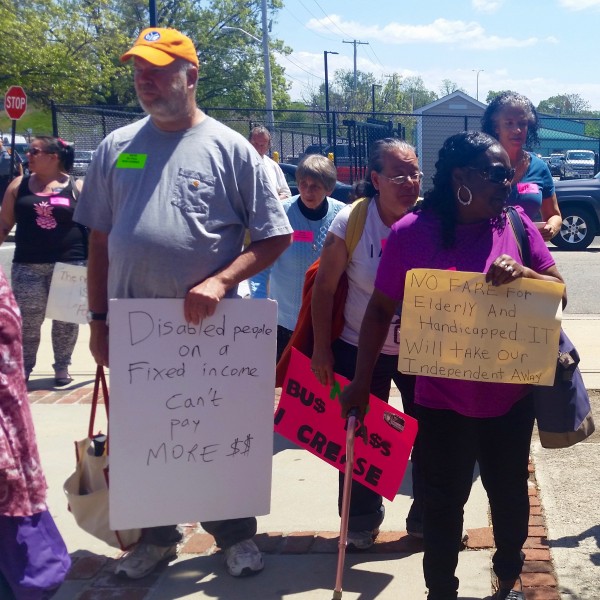
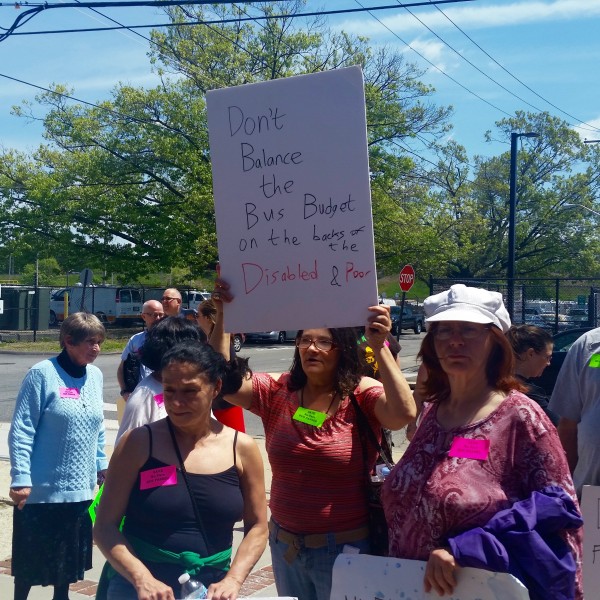
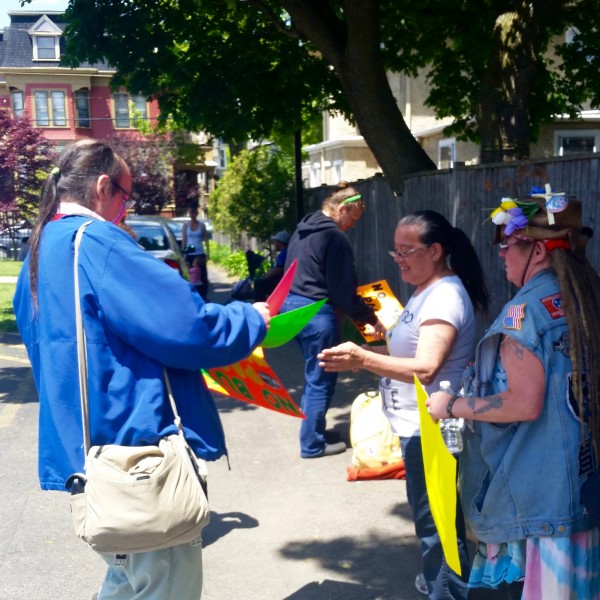
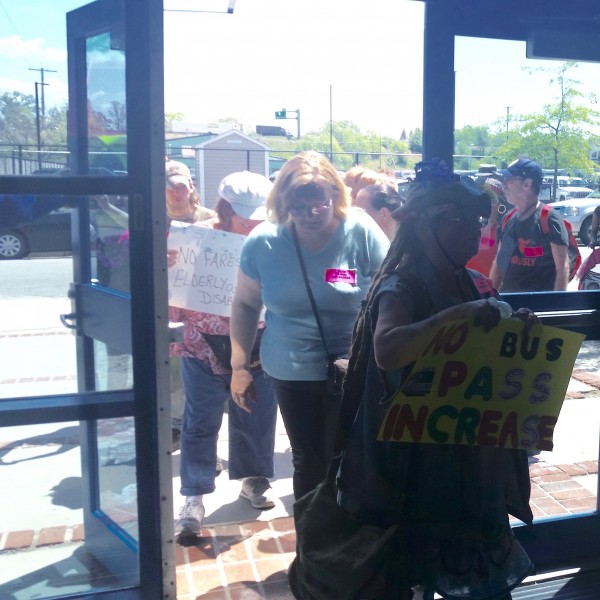
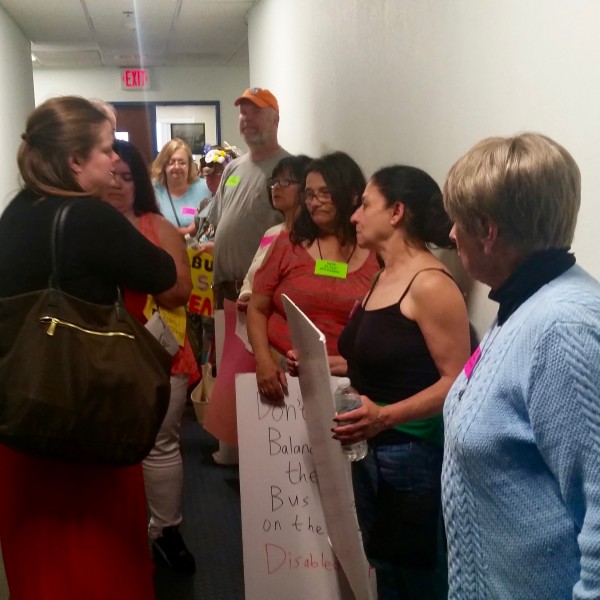



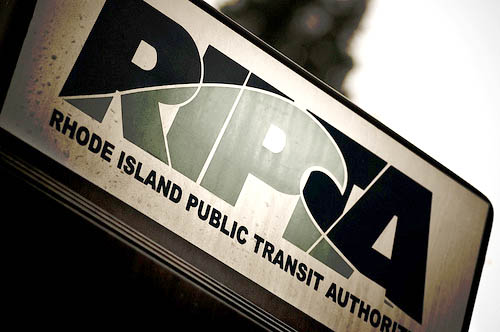
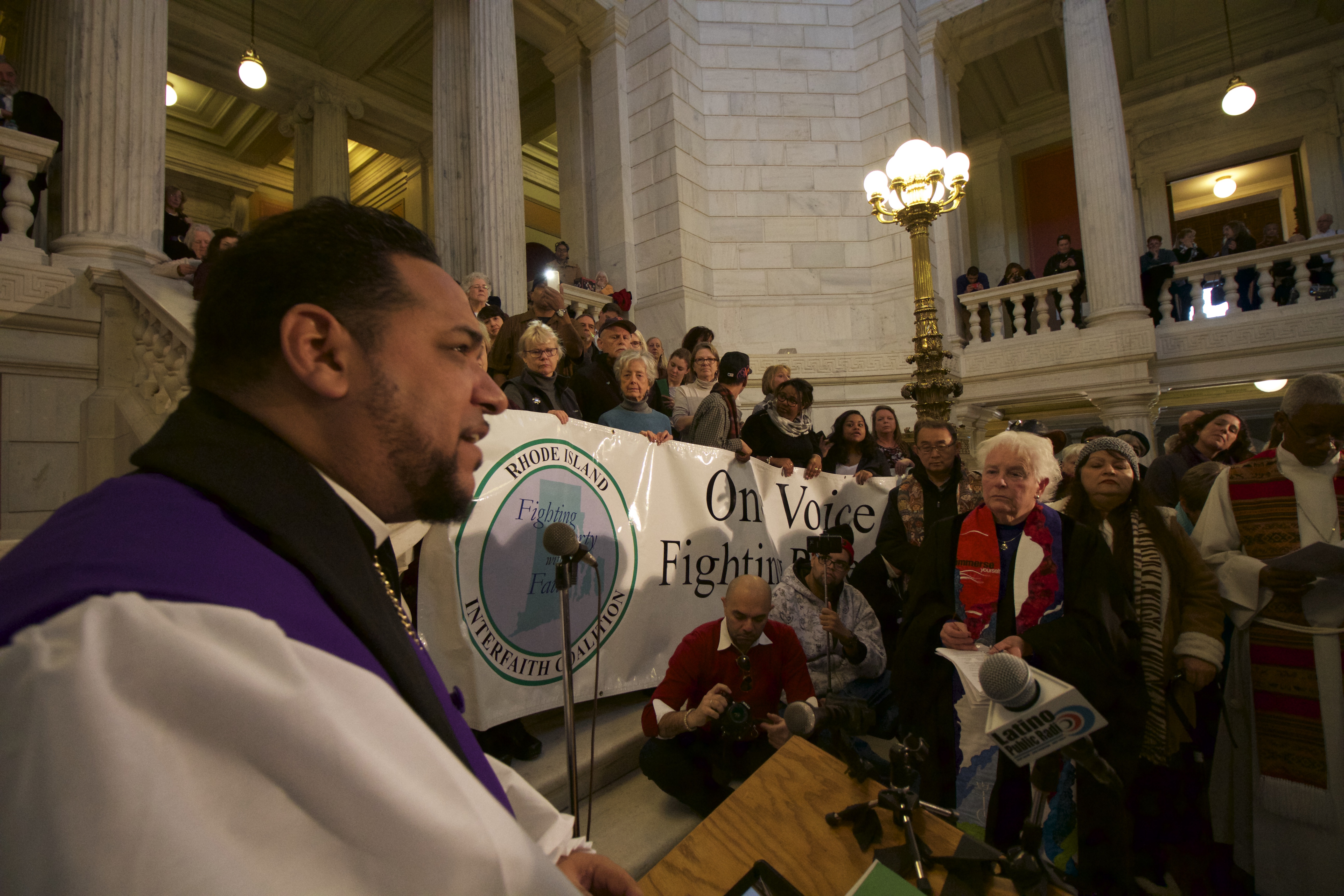
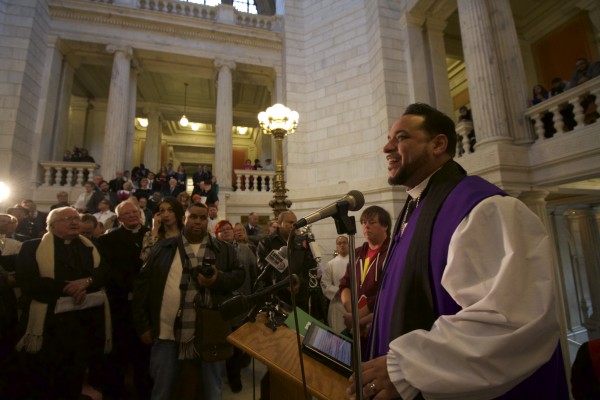
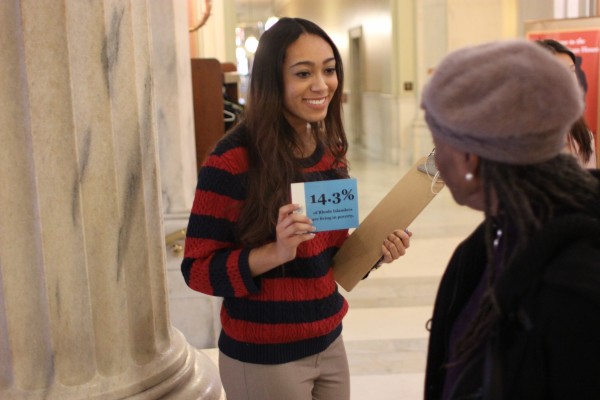 “A 14.3 percent poverty rate is the story for this year,” said Richman, “but it need not be the story for next year.”
“A 14.3 percent poverty rate is the story for this year,” said Richman, “but it need not be the story for next year.”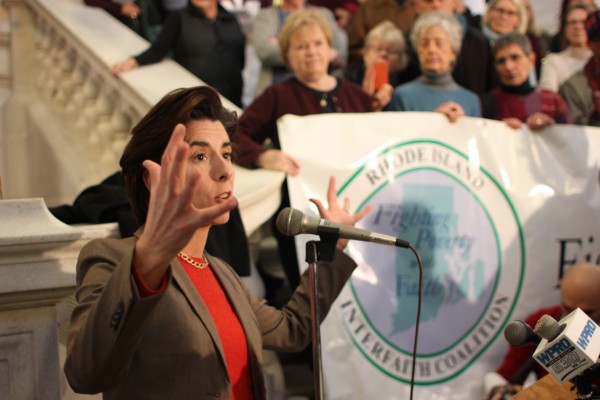
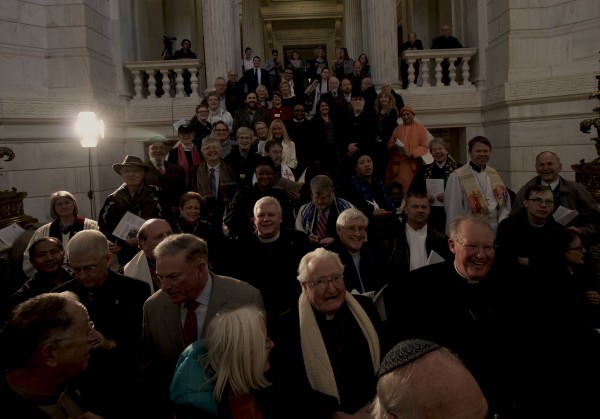 Also, as they have asked nearly every year and to no avail, the Coalition would like the General Assembly to take action to reform PayDay loans. This is unlikely as long as Speaker Mattiello continues to
Also, as they have asked nearly every year and to no avail, the Coalition would like the General Assembly to take action to reform PayDay loans. This is unlikely as long as Speaker Mattiello continues to 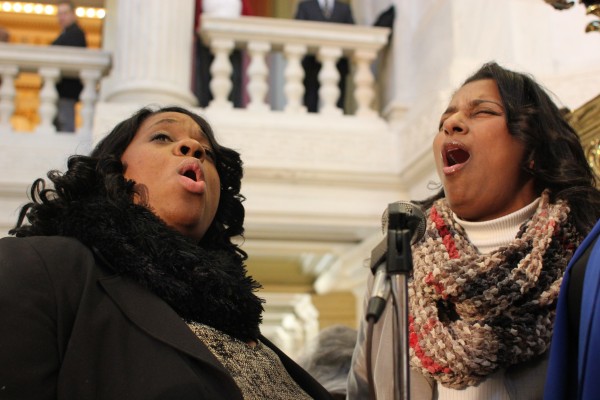

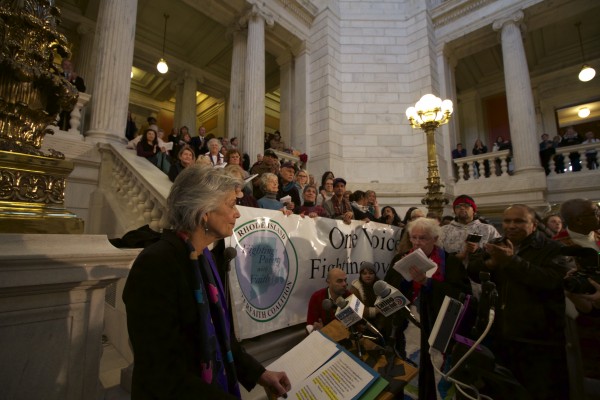
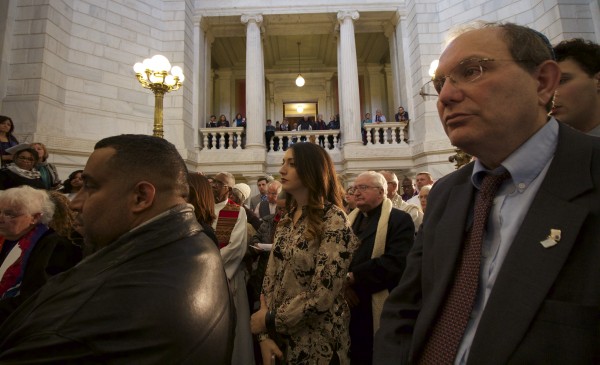
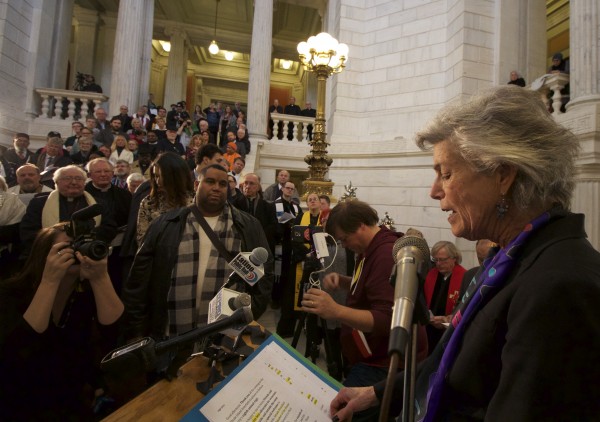
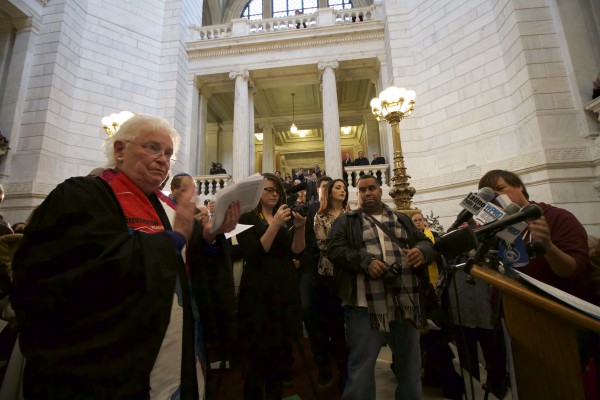
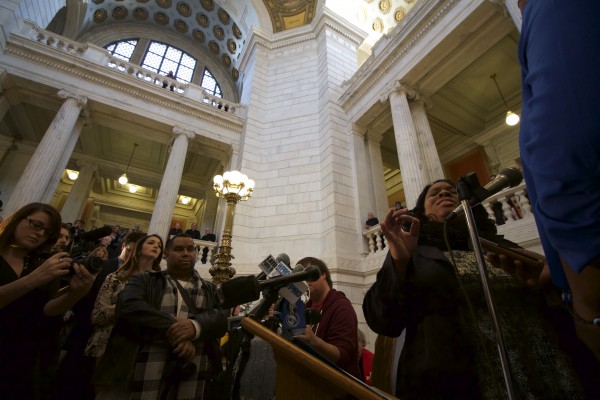
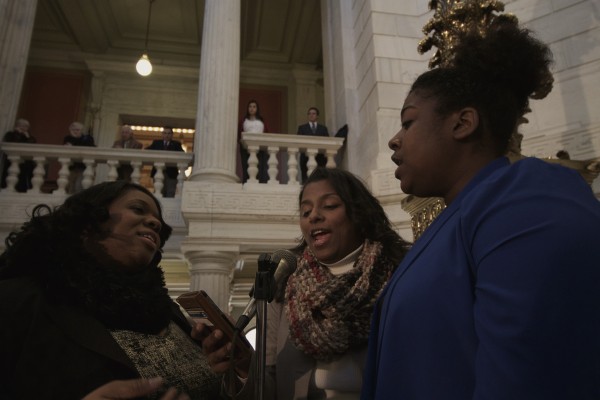
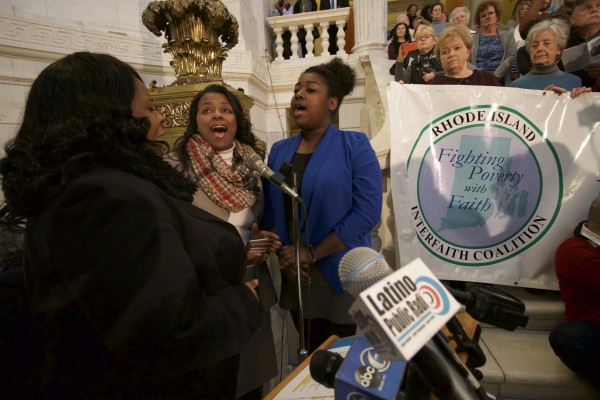

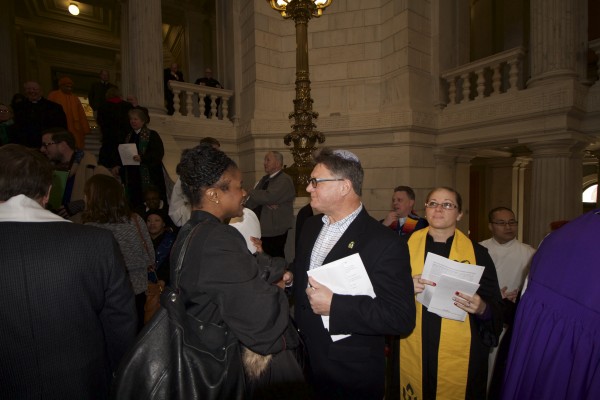

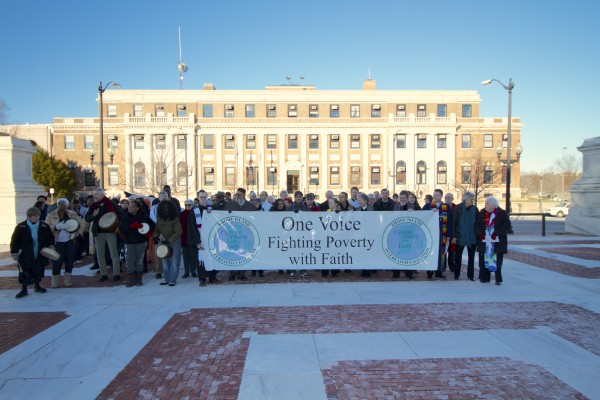

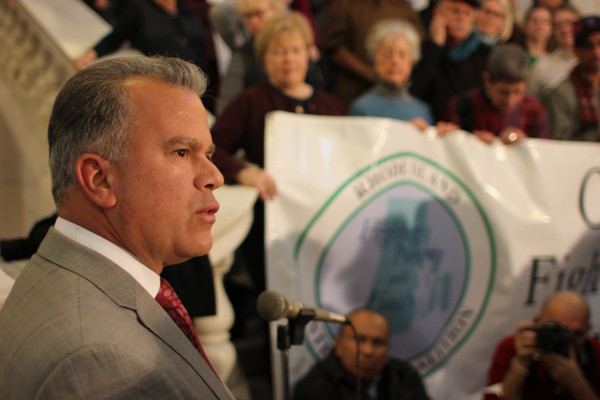
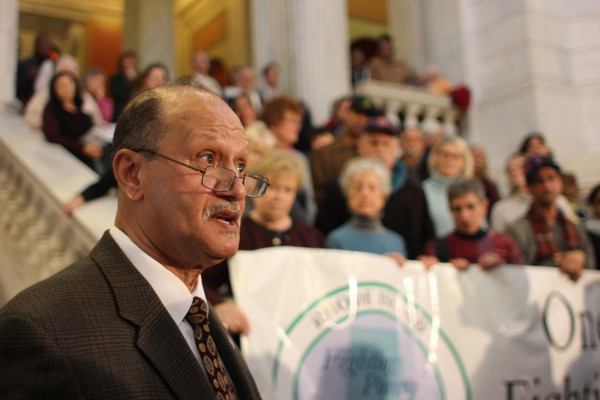
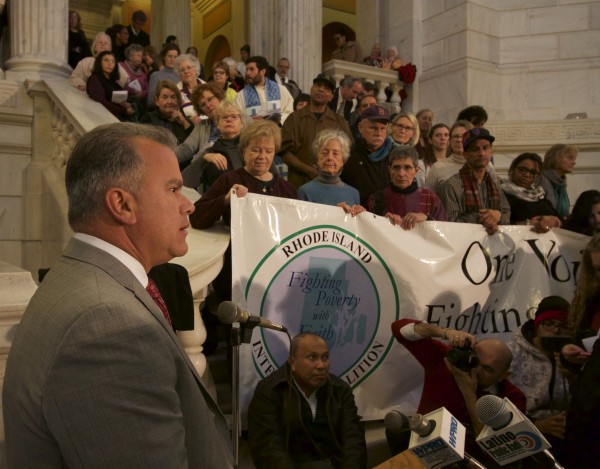

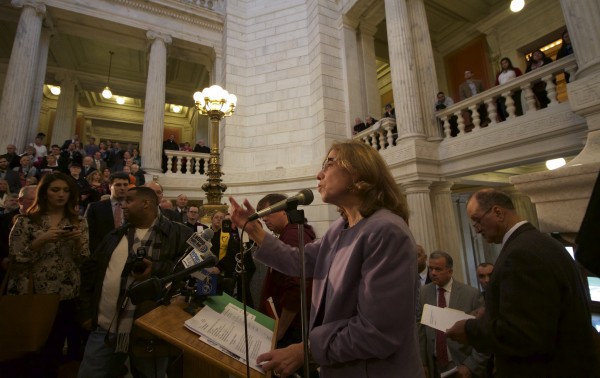
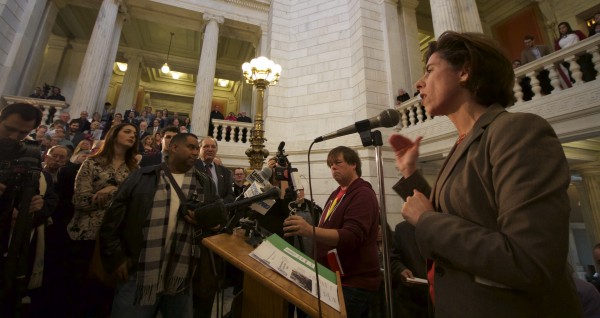
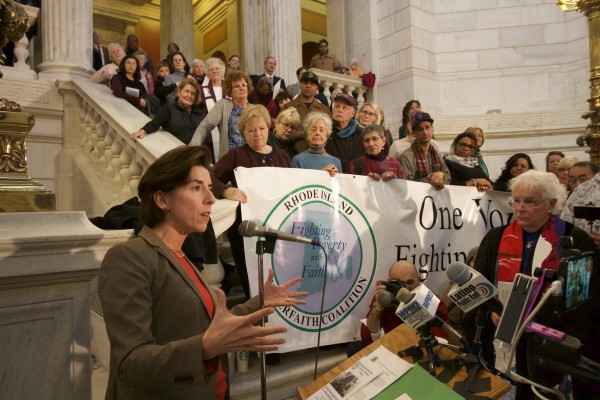
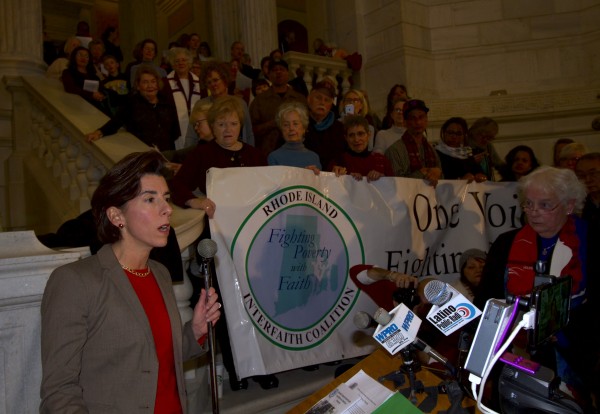
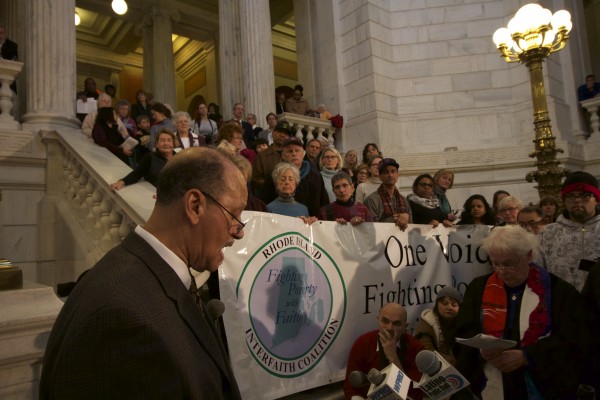
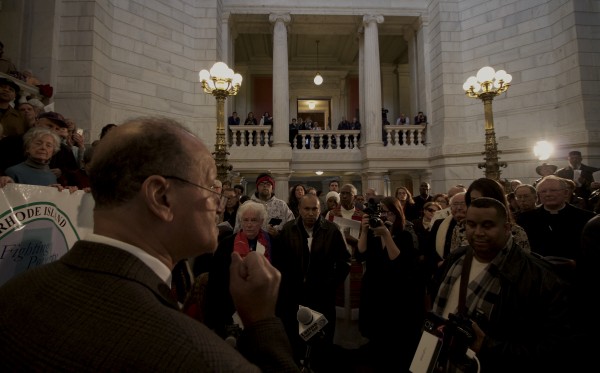
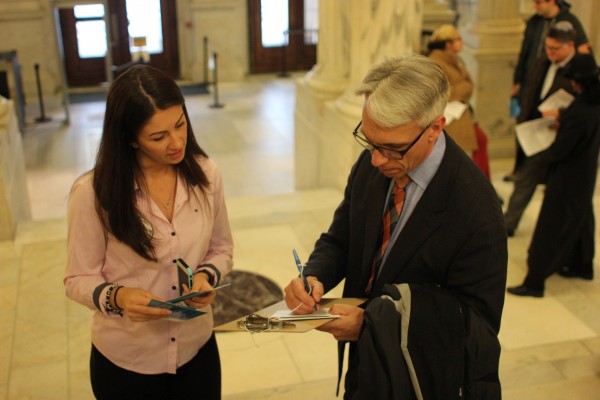
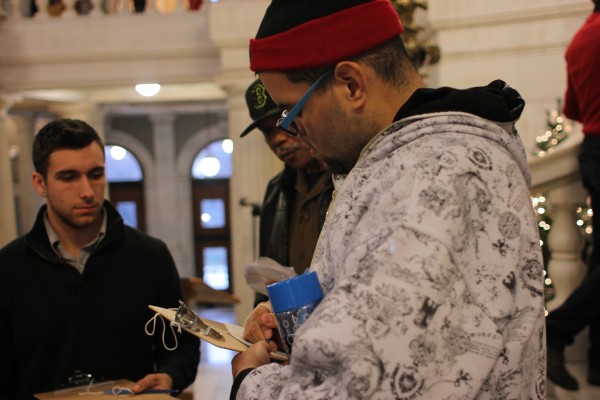


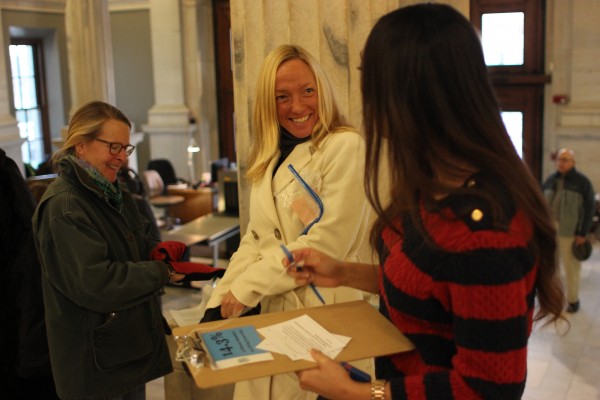
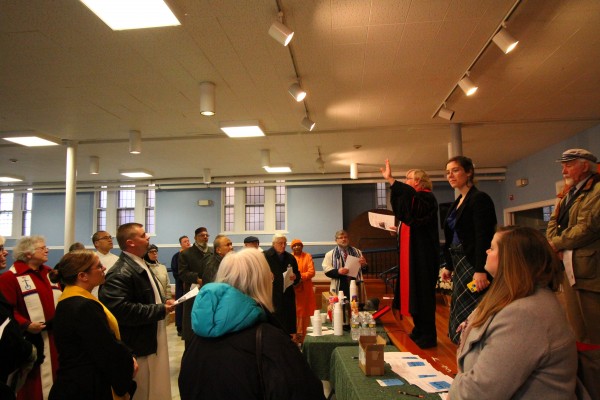
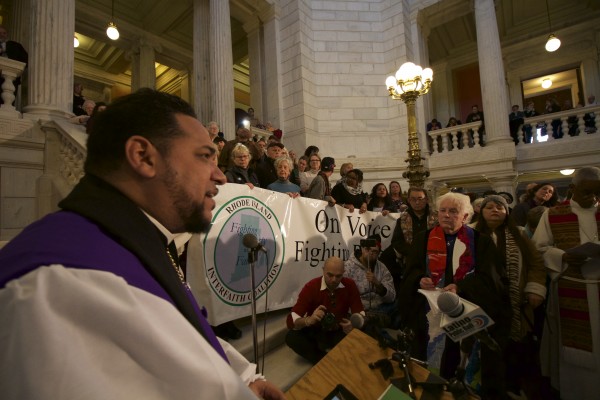

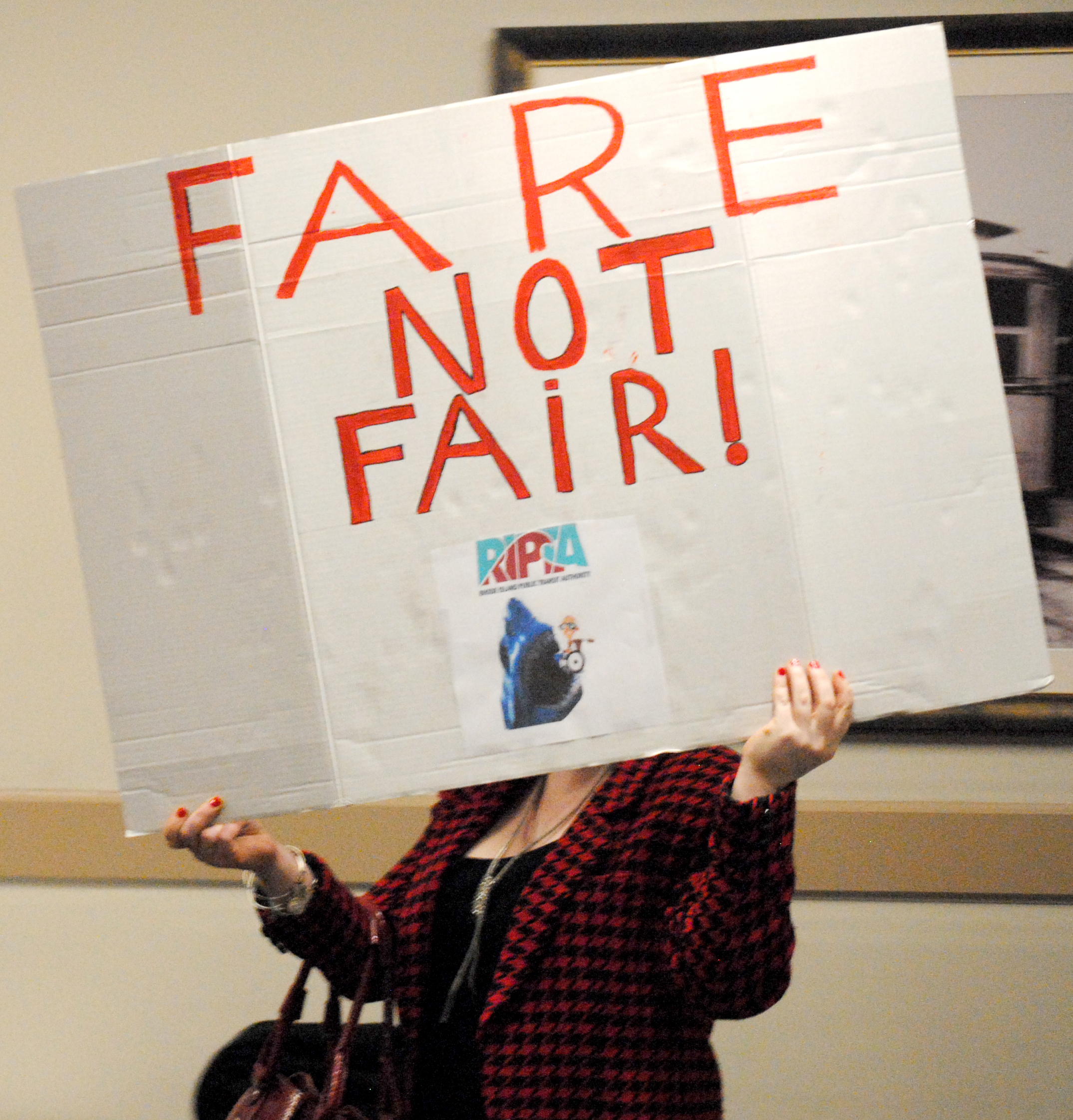
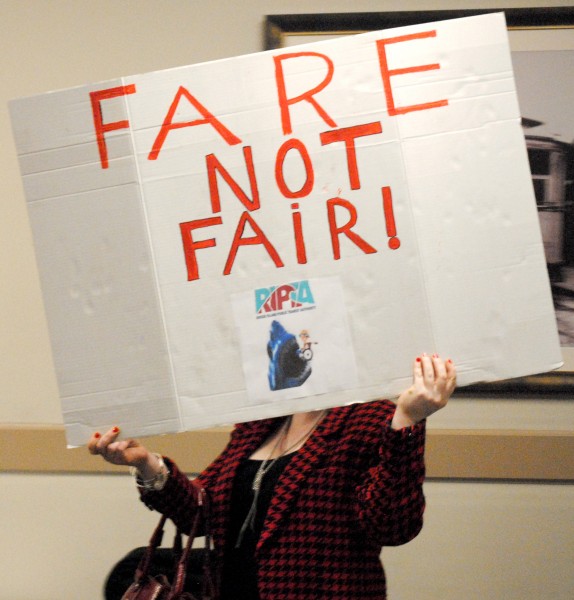 The worst part must be the stress of not knowing when and if their lives are going change. You can see it on the faces of many of those who come to speak.
The worst part must be the stress of not knowing when and if their lives are going change. You can see it on the faces of many of those who come to speak.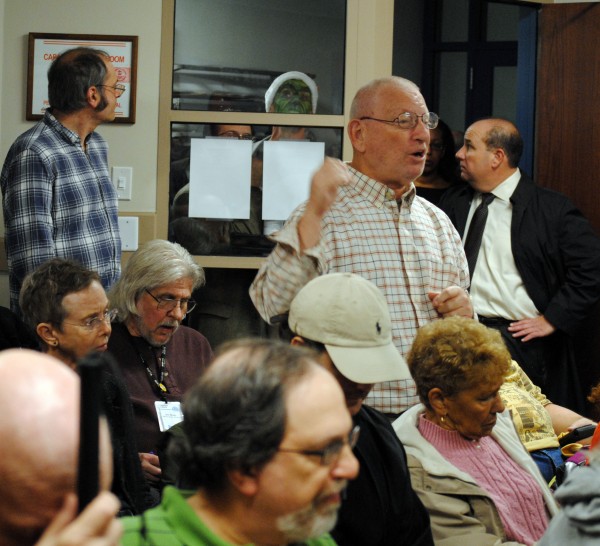 But if you are one of those dependent on RIPTA for your transportation needs, you don’t know this; not with any certainty. Some estimate that those on a fixed income will have to spend $30 a week or more on transportation. Not on doctor’s visits, they will be covered by Logisticare, a private contractor. But pharmacy visits, shopping, friend and family visits, trips to twelve-step programs, church, political meetings, or any other kind of travel, will be money taken out of the budget for food, medication, utilities, toiletries or rent.
But if you are one of those dependent on RIPTA for your transportation needs, you don’t know this; not with any certainty. Some estimate that those on a fixed income will have to spend $30 a week or more on transportation. Not on doctor’s visits, they will be covered by Logisticare, a private contractor. But pharmacy visits, shopping, friend and family visits, trips to twelve-step programs, church, political meetings, or any other kind of travel, will be money taken out of the budget for food, medication, utilities, toiletries or rent.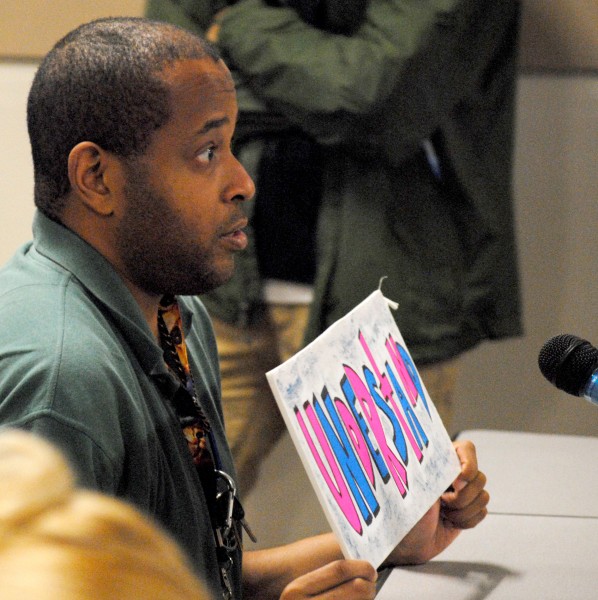
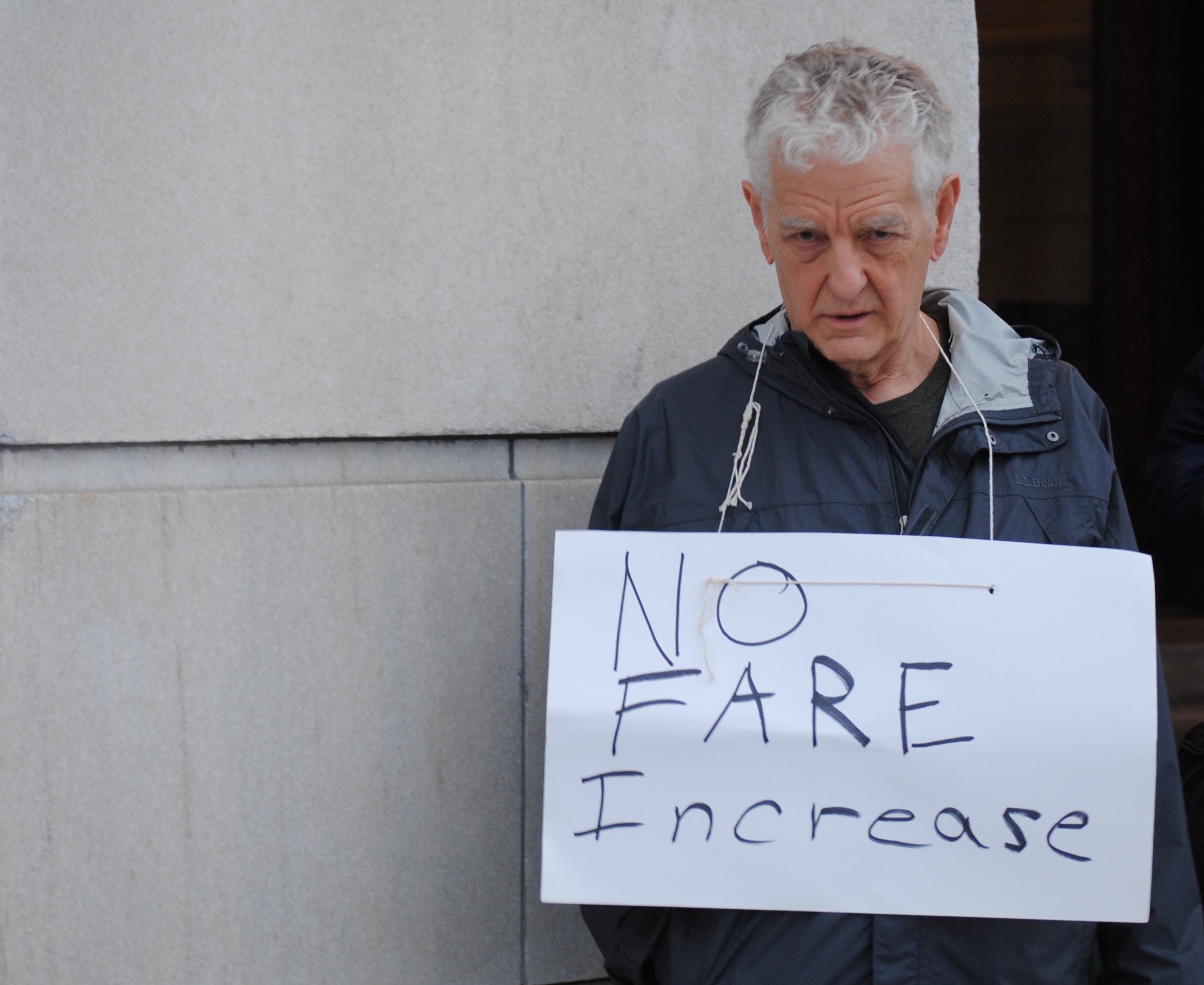
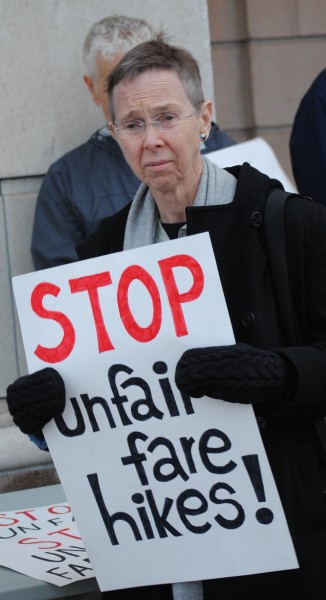 The RIPTA Riders Alliance held a rally and press conference outside the State House yesterday to call attention to the proposed increases in fares for elderly and disabled passengers. As has been
The RIPTA Riders Alliance held a rally and press conference outside the State House yesterday to call attention to the proposed increases in fares for elderly and disabled passengers. As has been 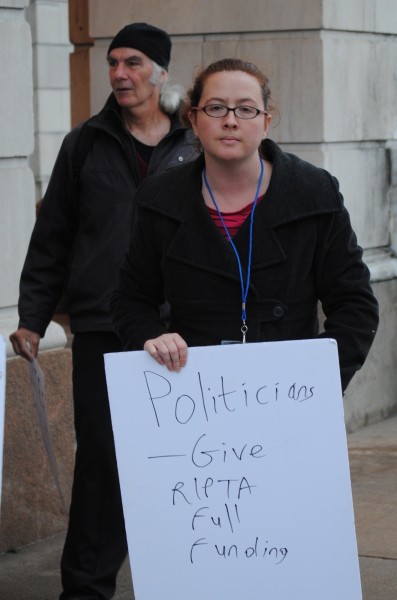
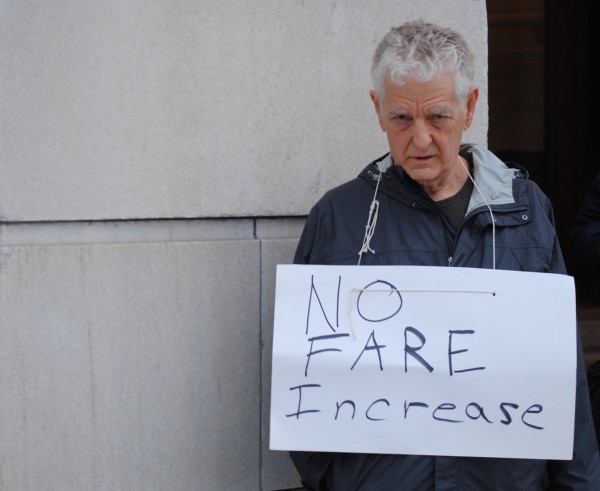
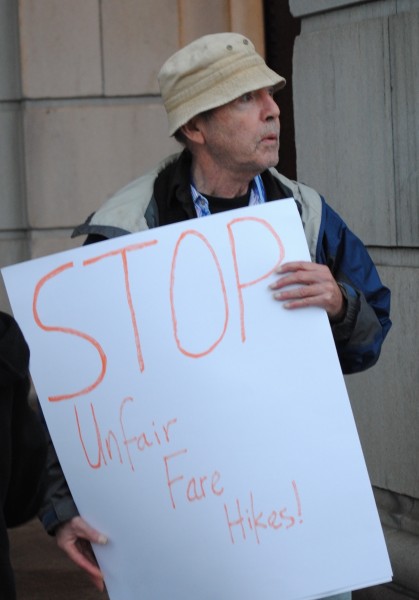
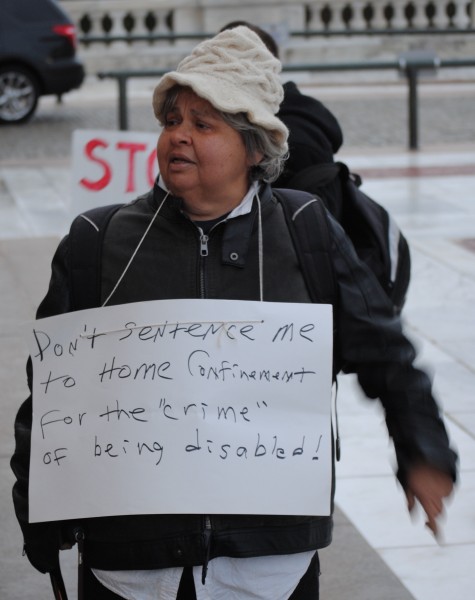
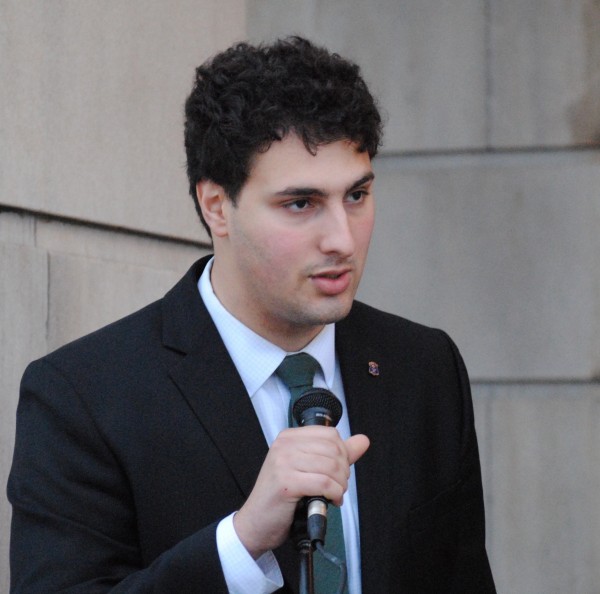
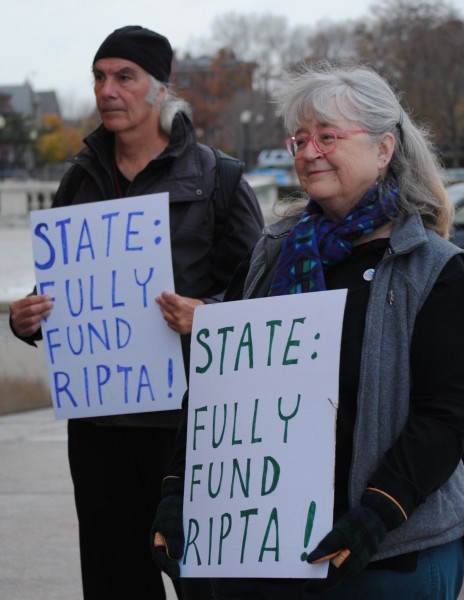
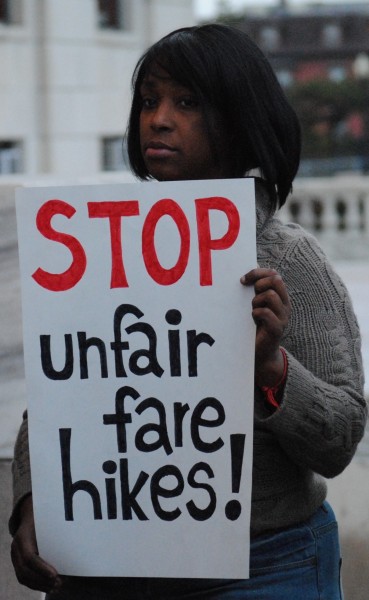
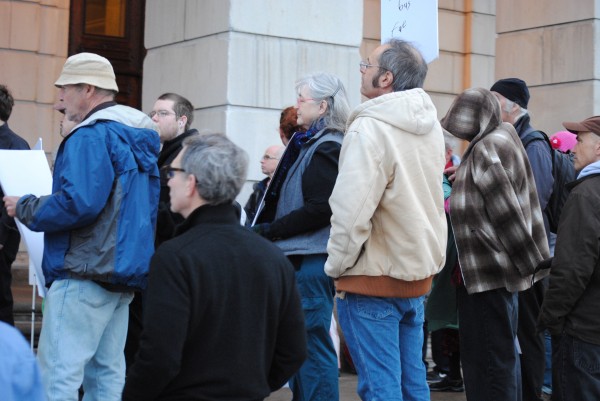

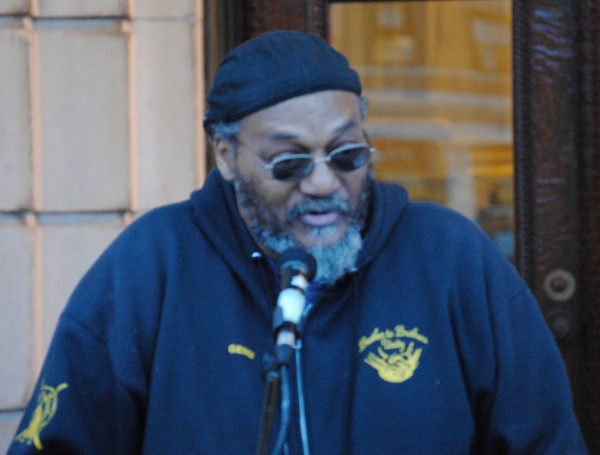
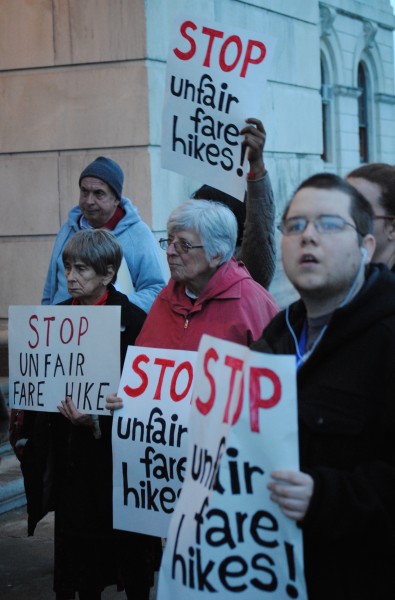
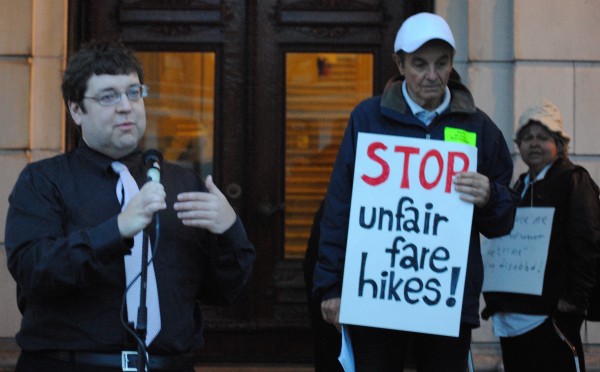
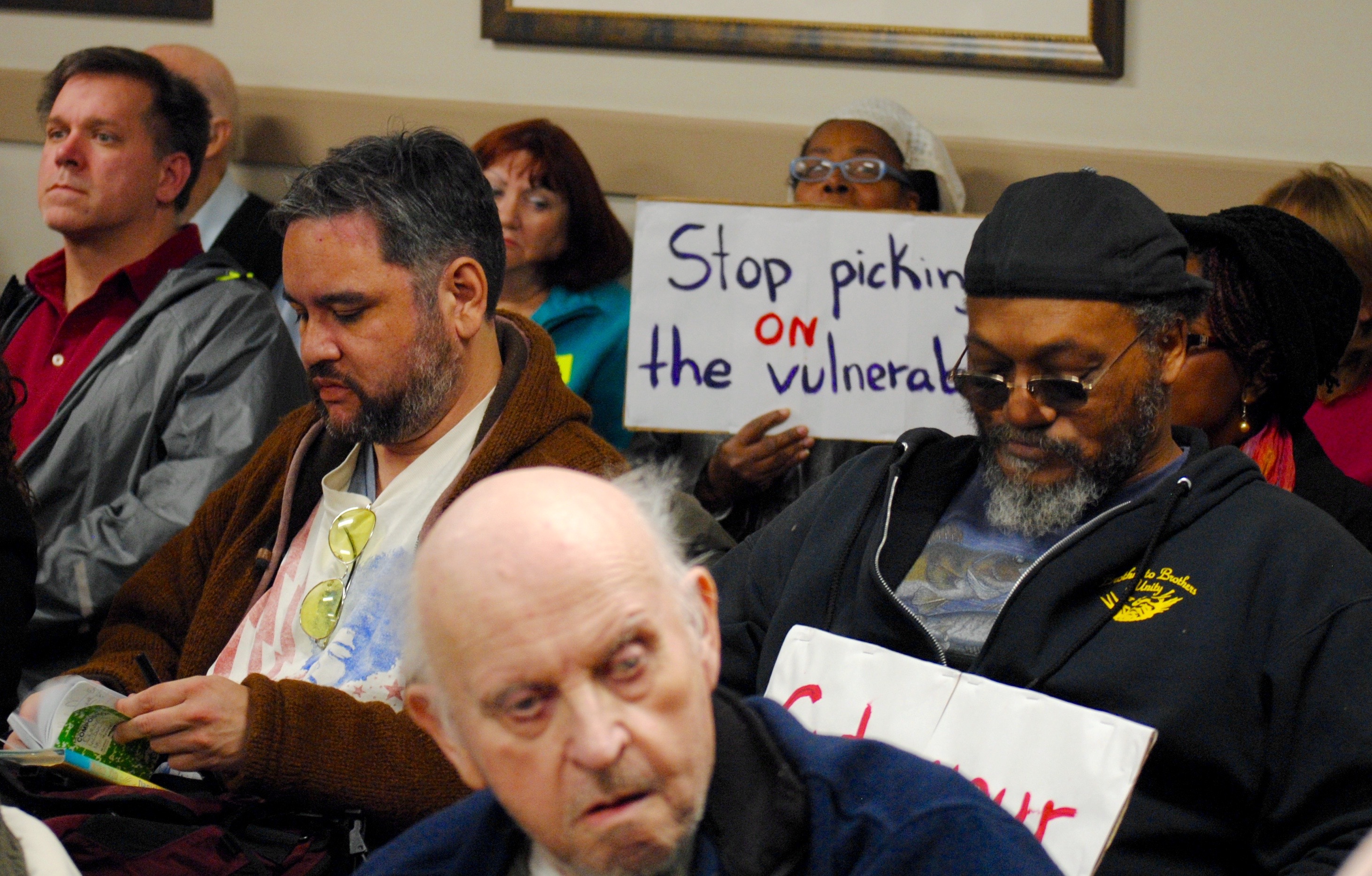
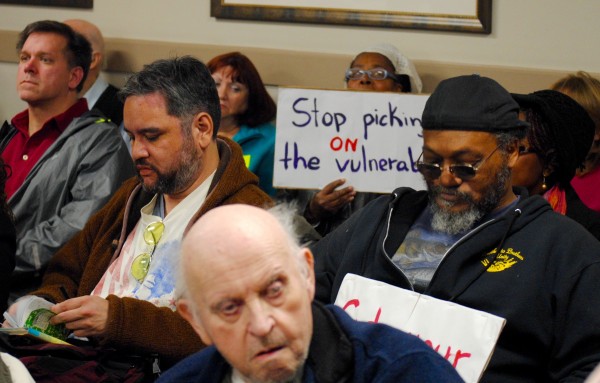
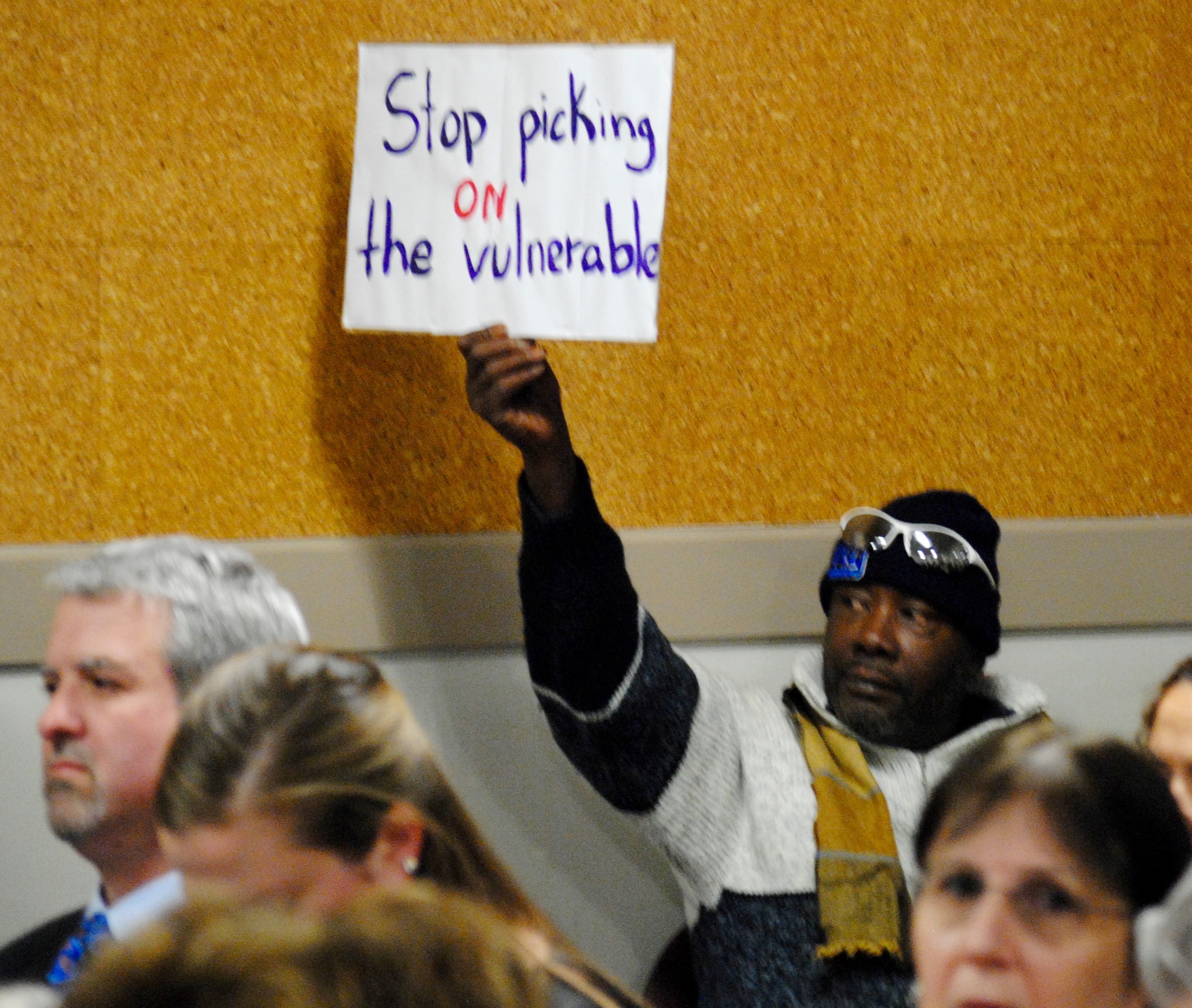
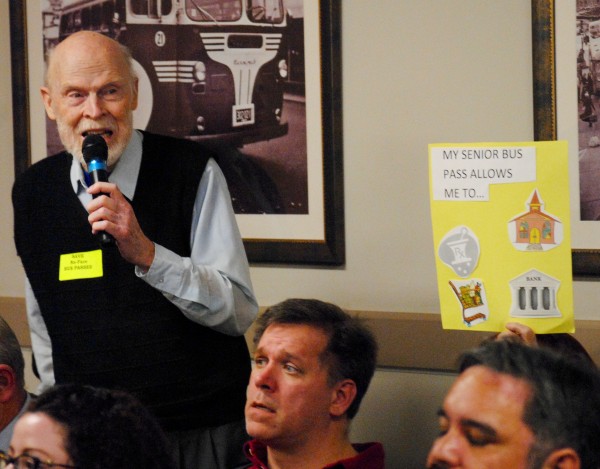

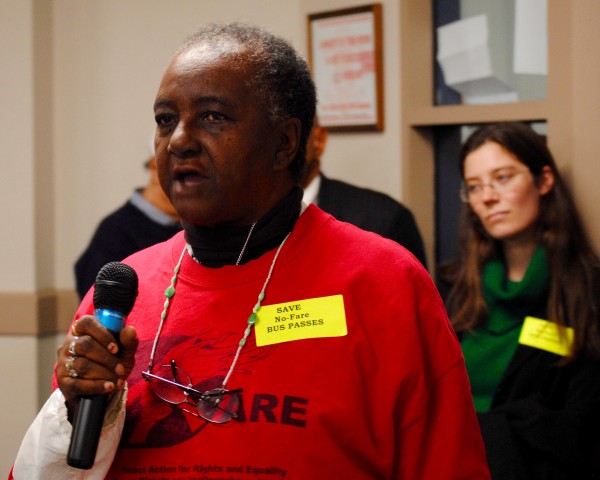
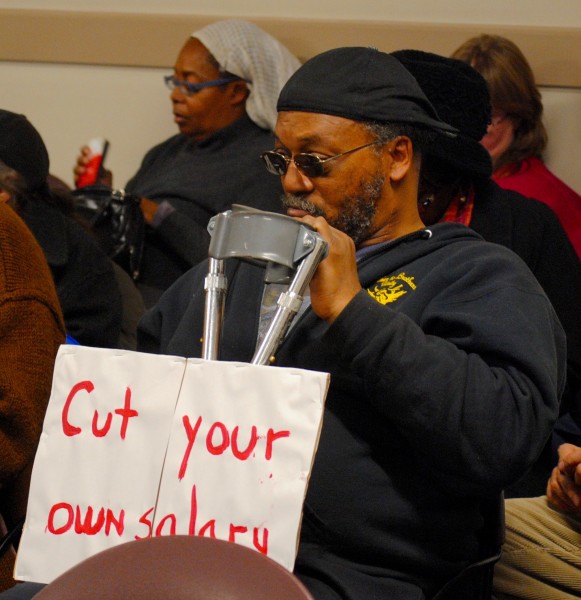

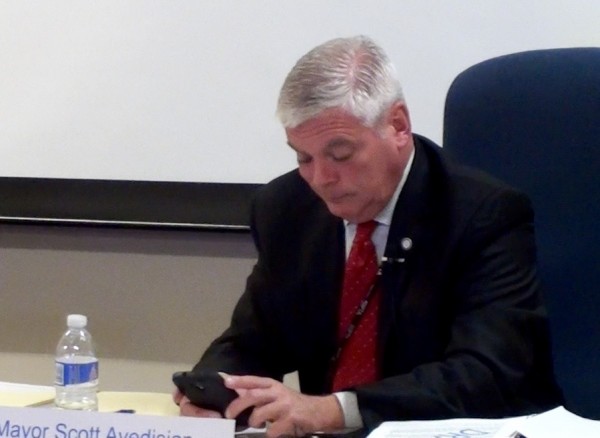
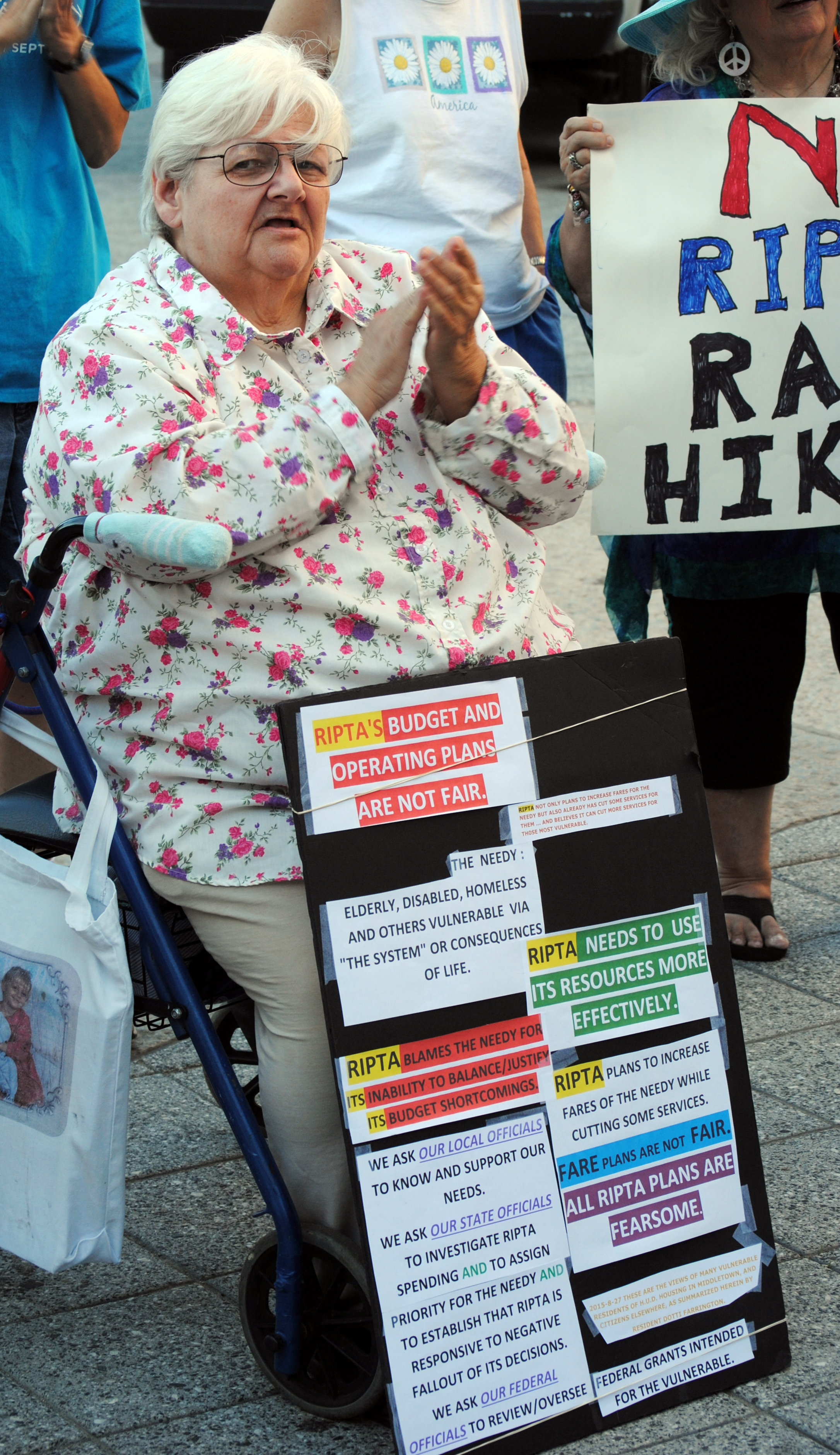
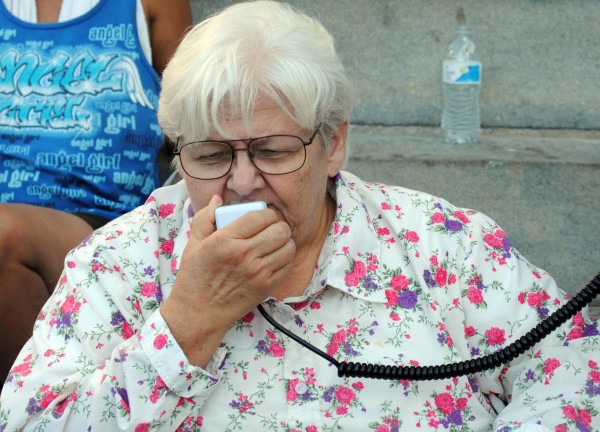 RIPTA Riders Alliance, an advocacy group for bus riders, held a
RIPTA Riders Alliance, an advocacy group for bus riders, held a 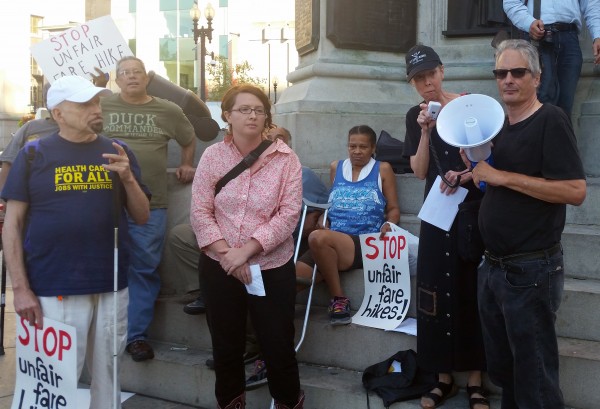 RIPTA Riders Alliance release a list of cities and states with bus systems of comparable size to RIPTA. The average fare in these systems in $1.60 for regular riders, 40 cents lower than RIPTA. The average rate for seniors and disabled riders is 68 cents. RIPTA Riders Alliance wants RIPTA to find savings via internal
RIPTA Riders Alliance release a list of cities and states with bus systems of comparable size to RIPTA. The average fare in these systems in $1.60 for regular riders, 40 cents lower than RIPTA. The average rate for seniors and disabled riders is 68 cents. RIPTA Riders Alliance wants RIPTA to find savings via internal 